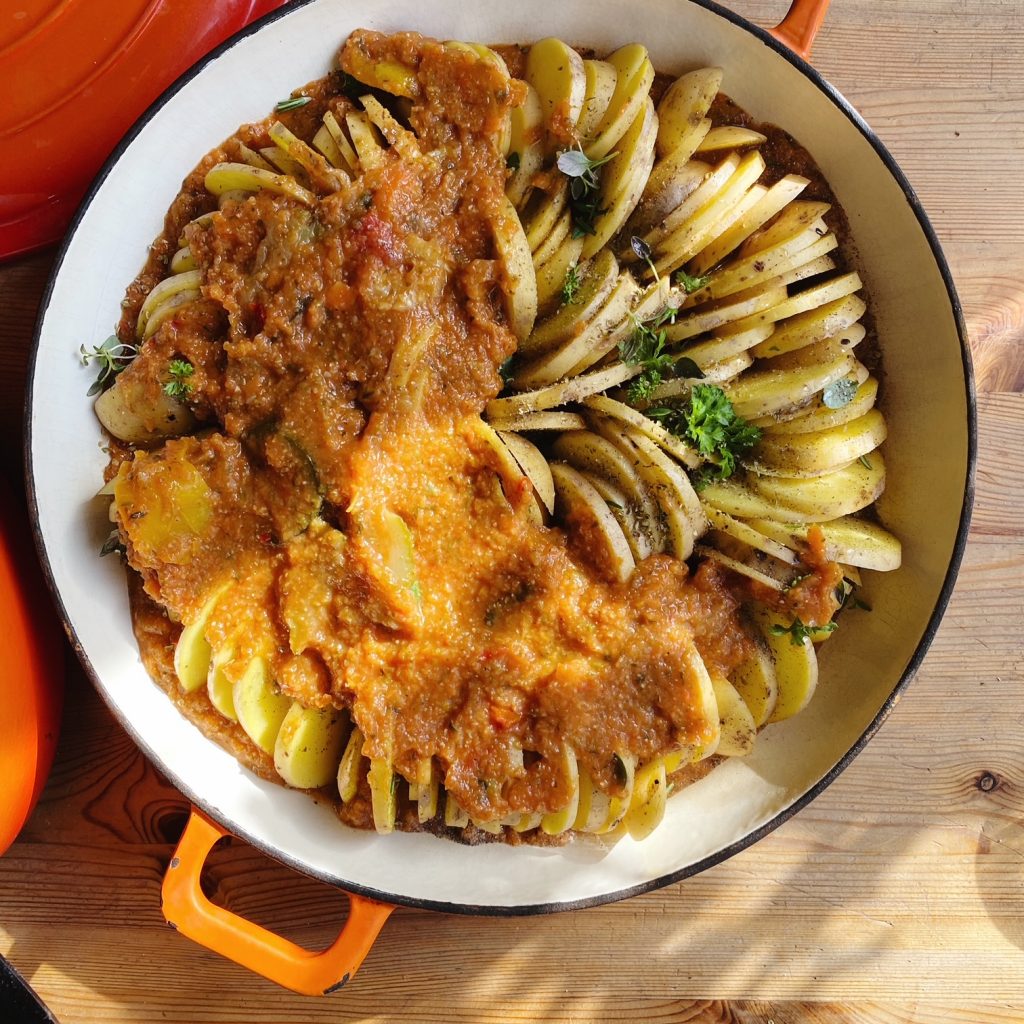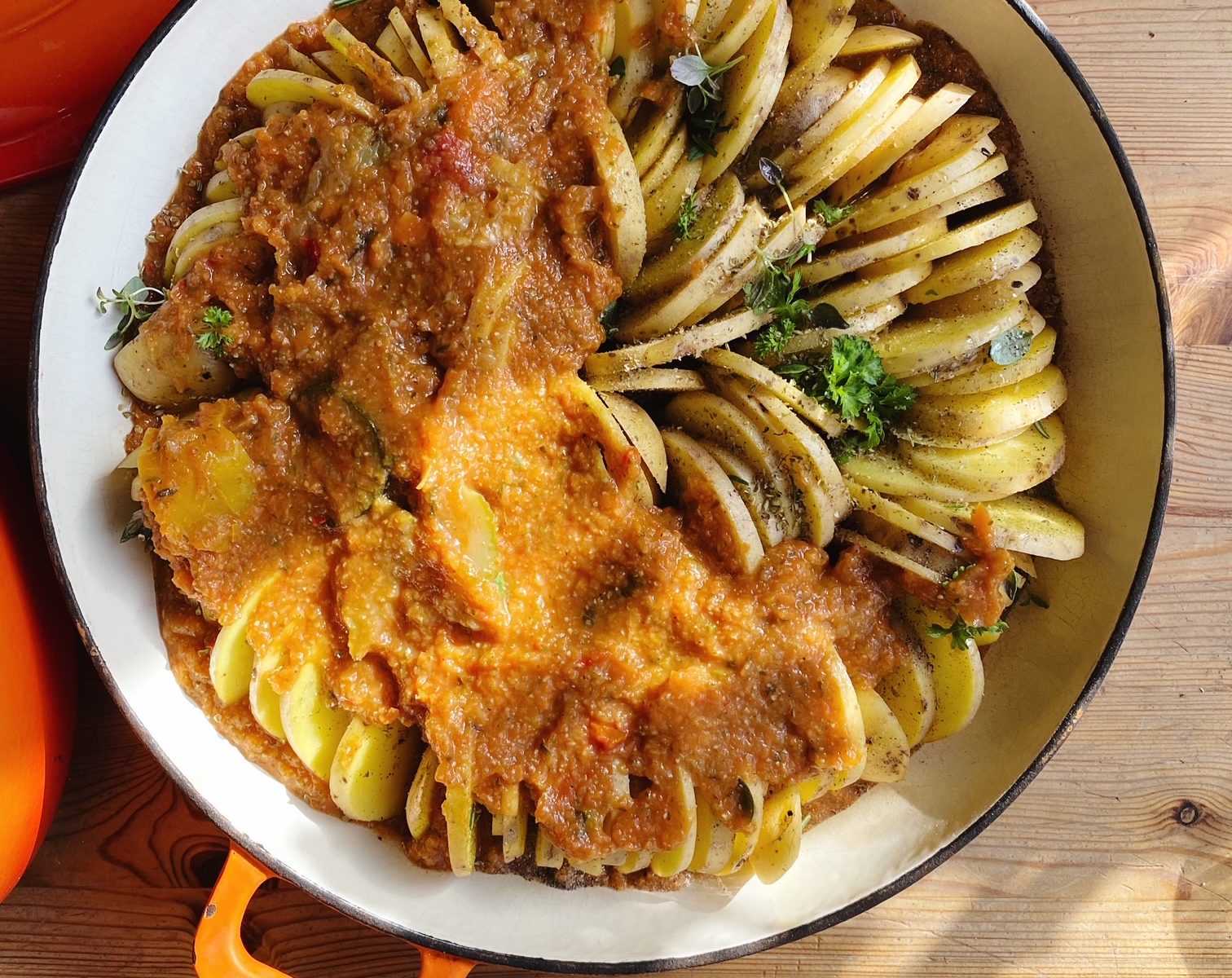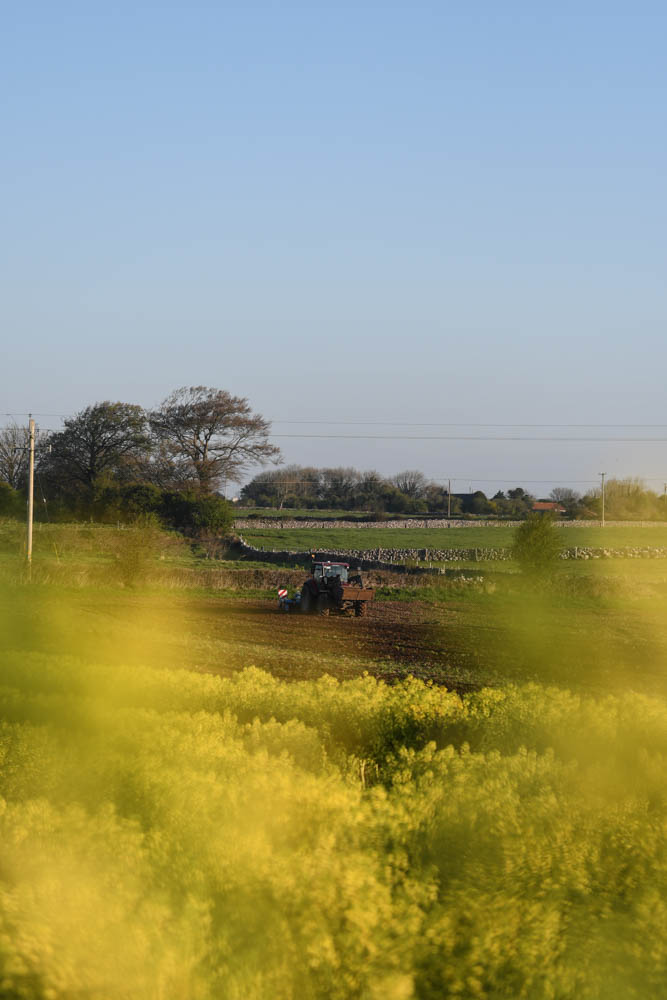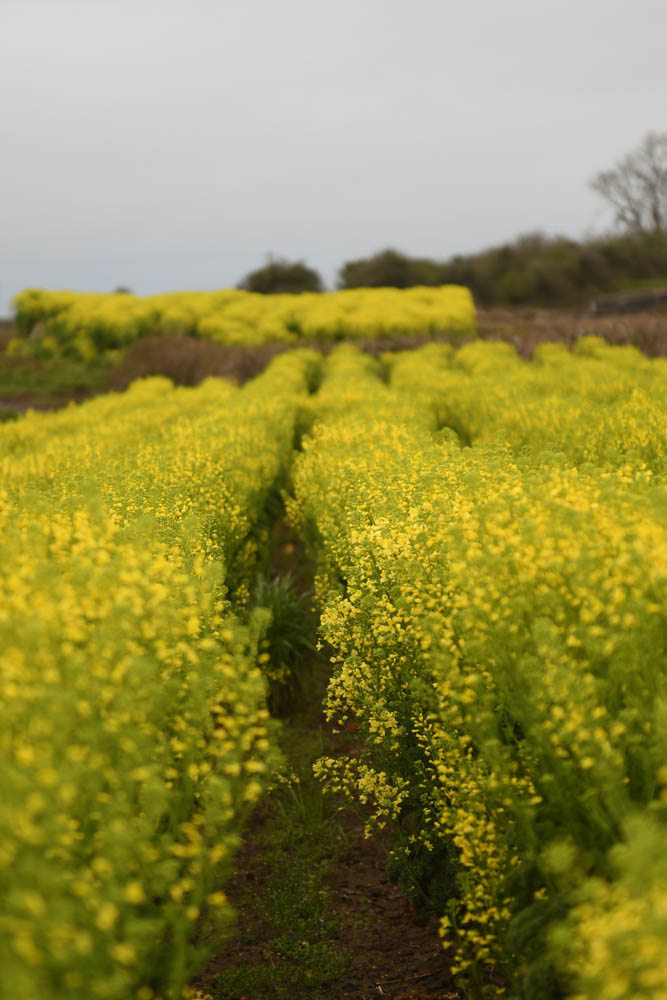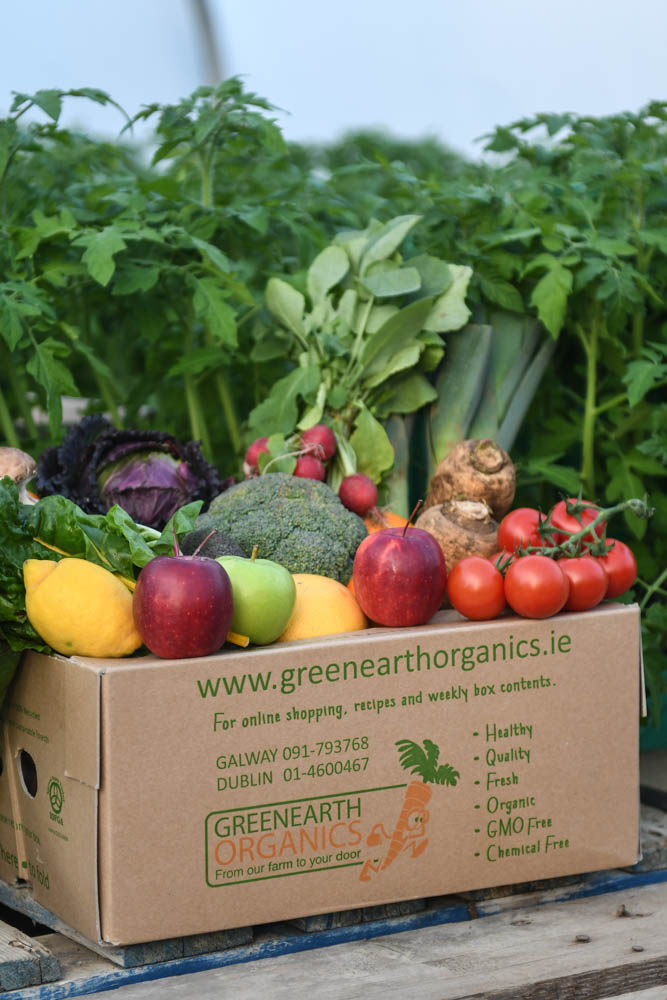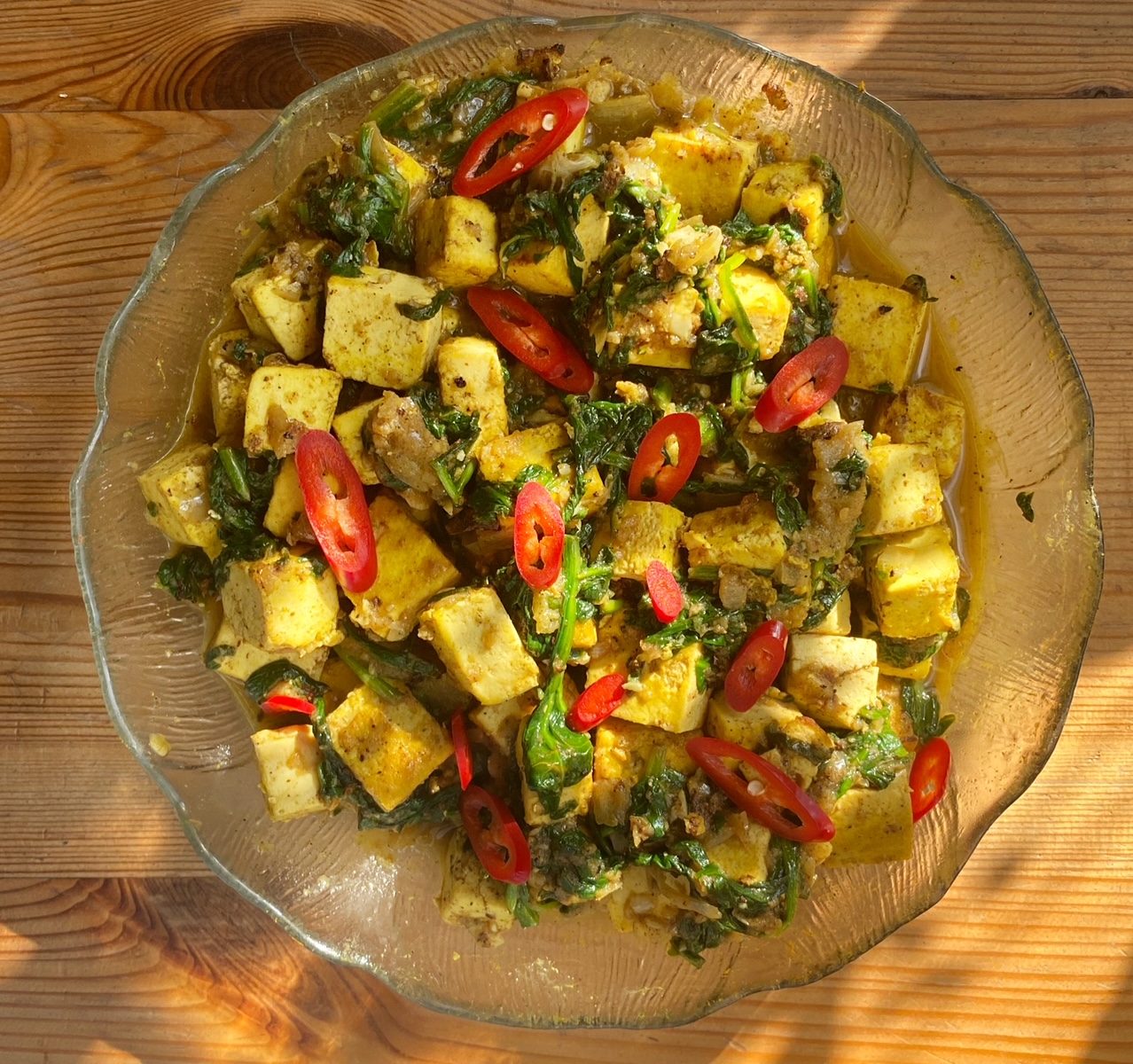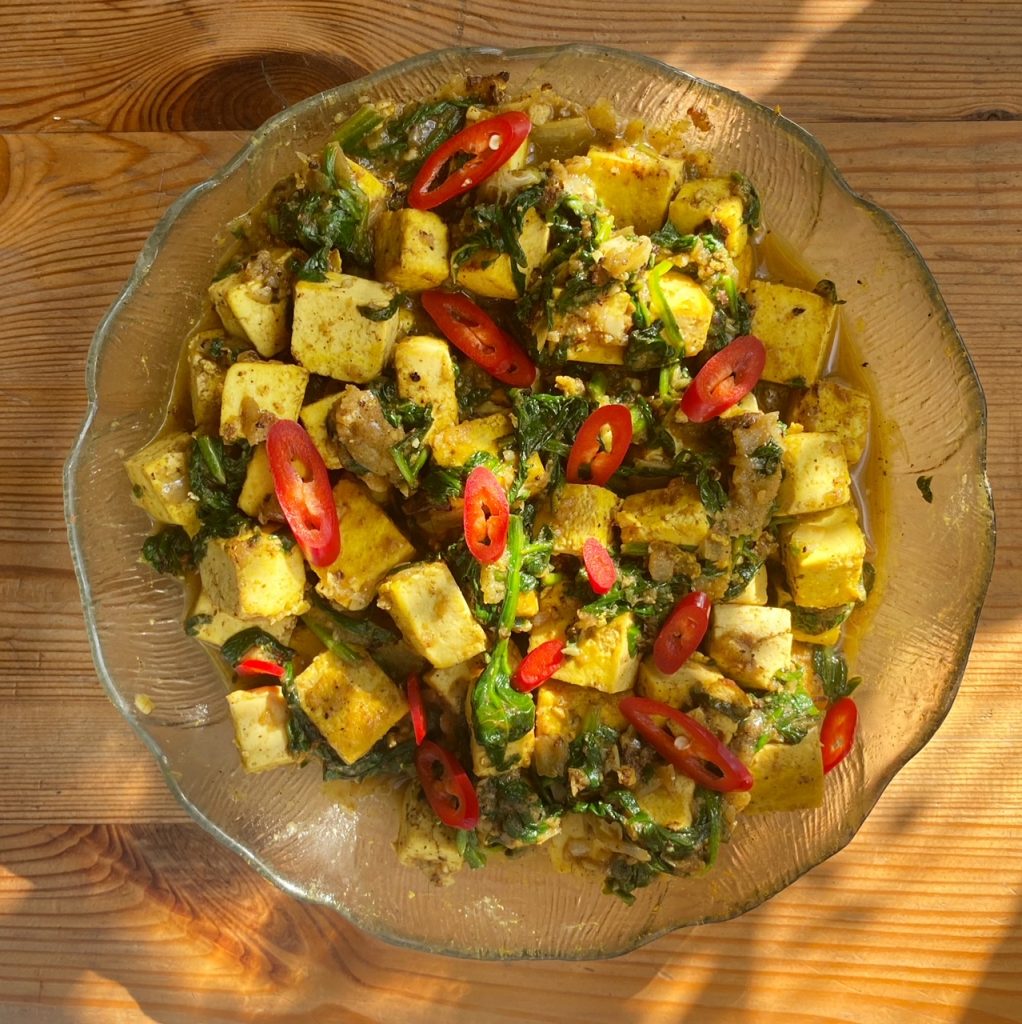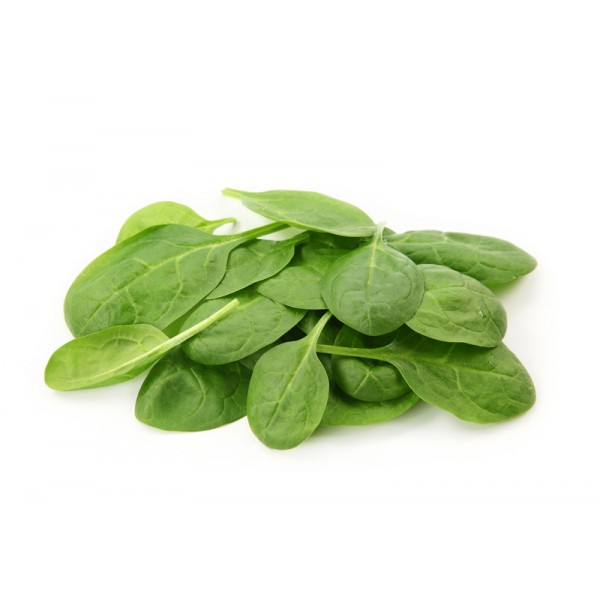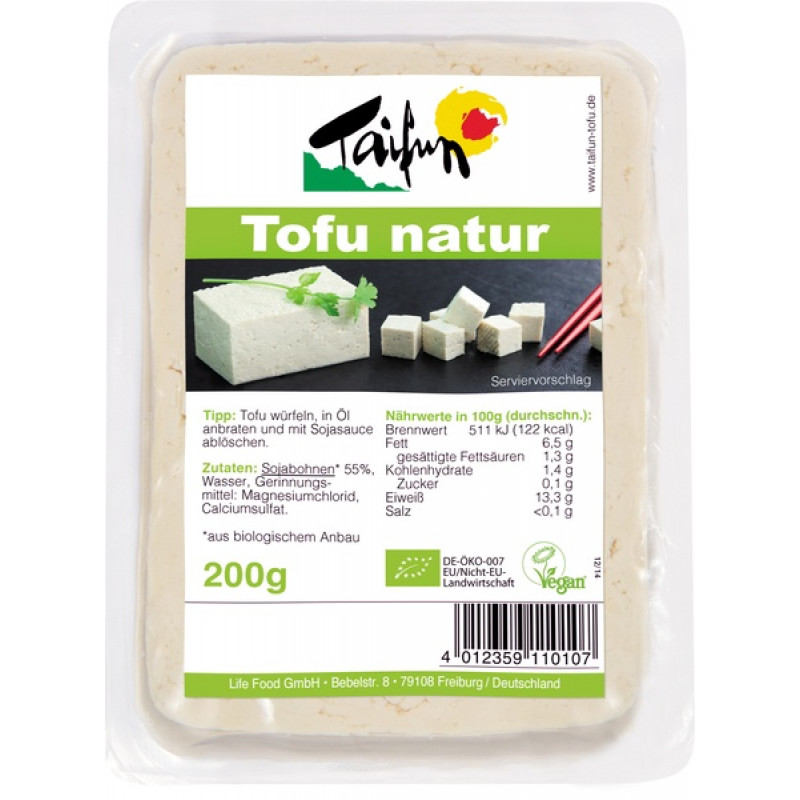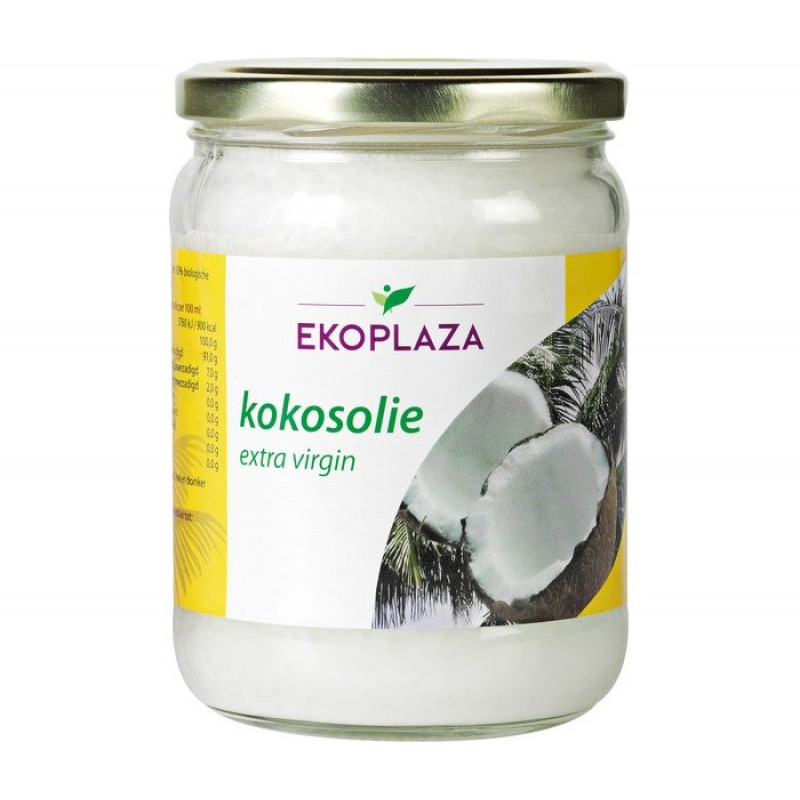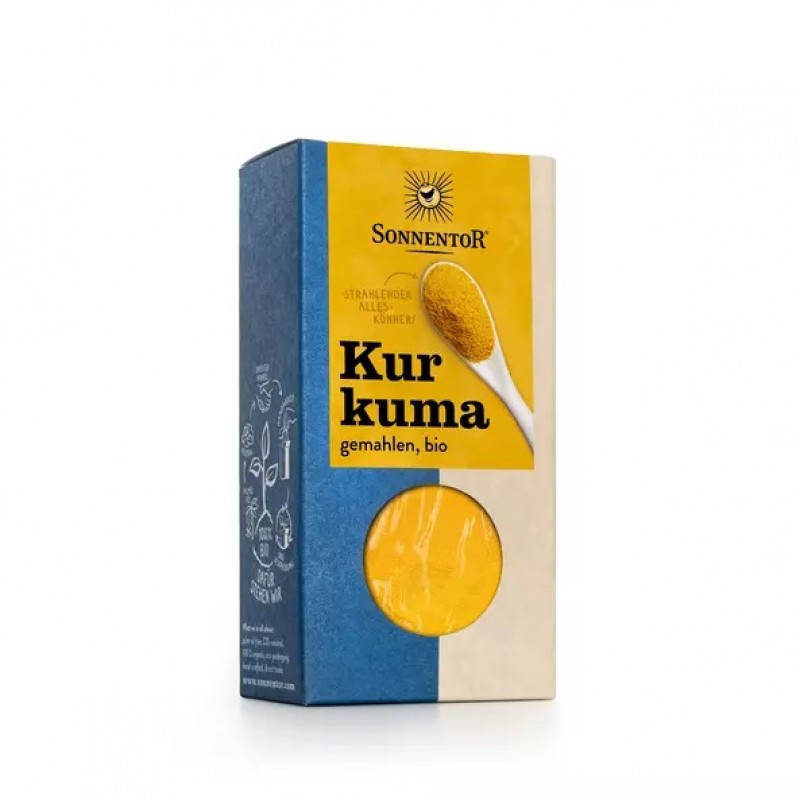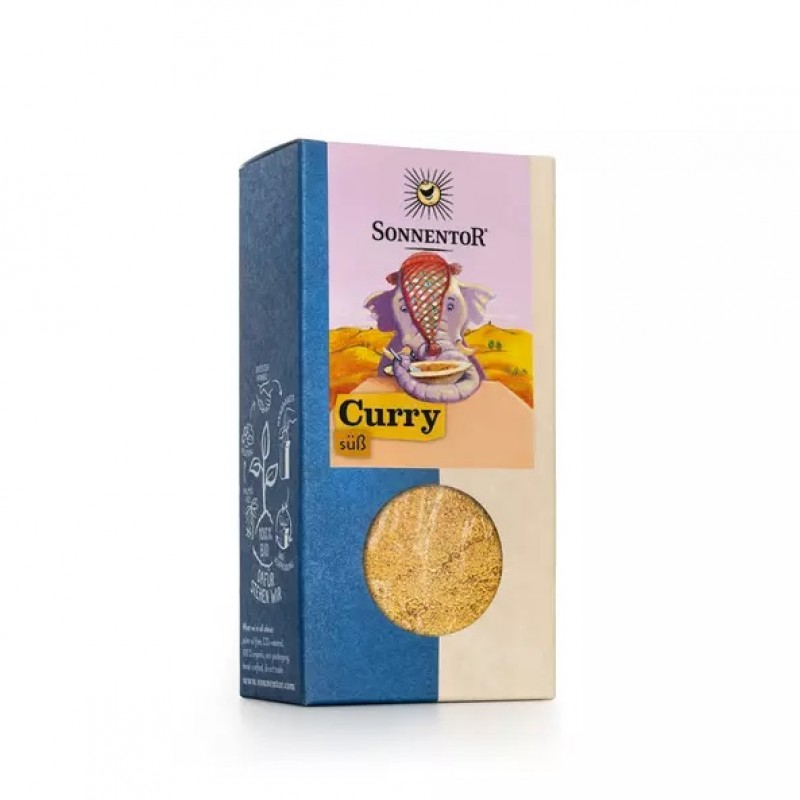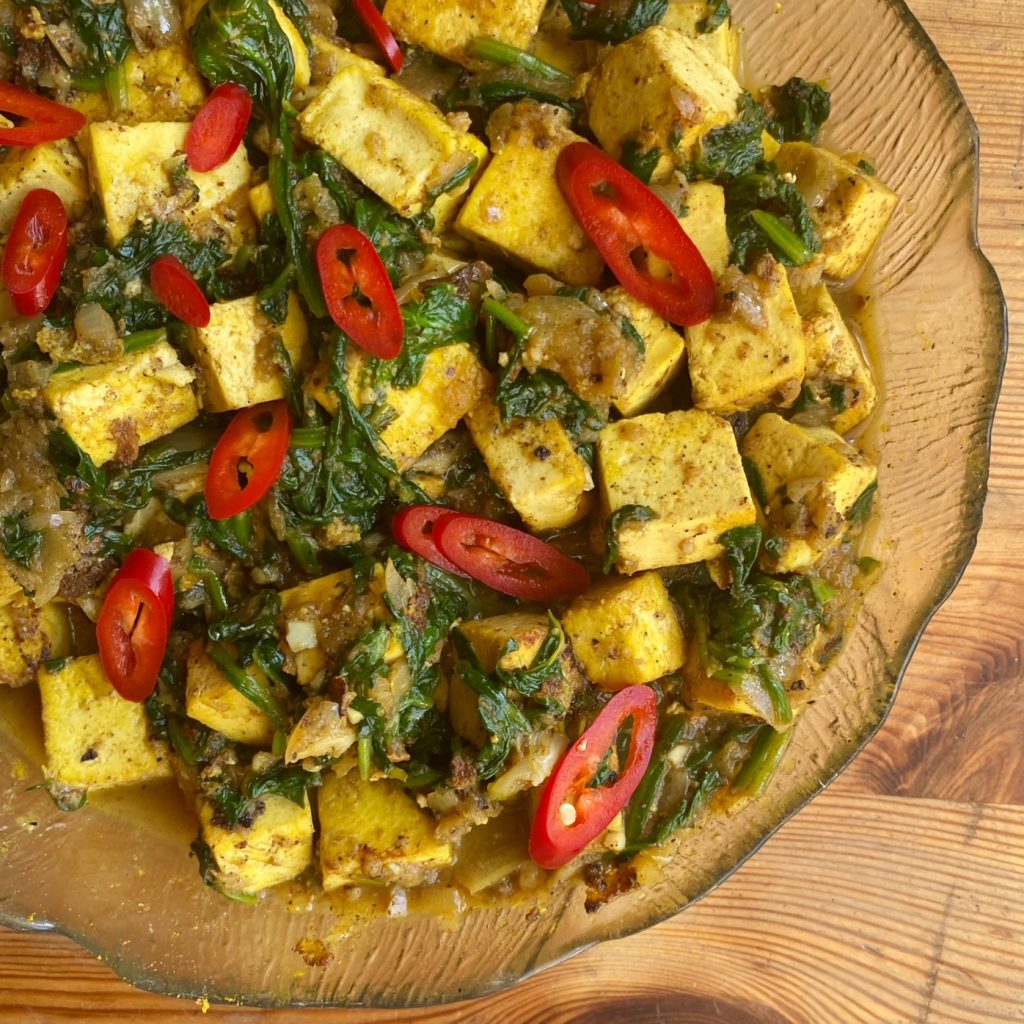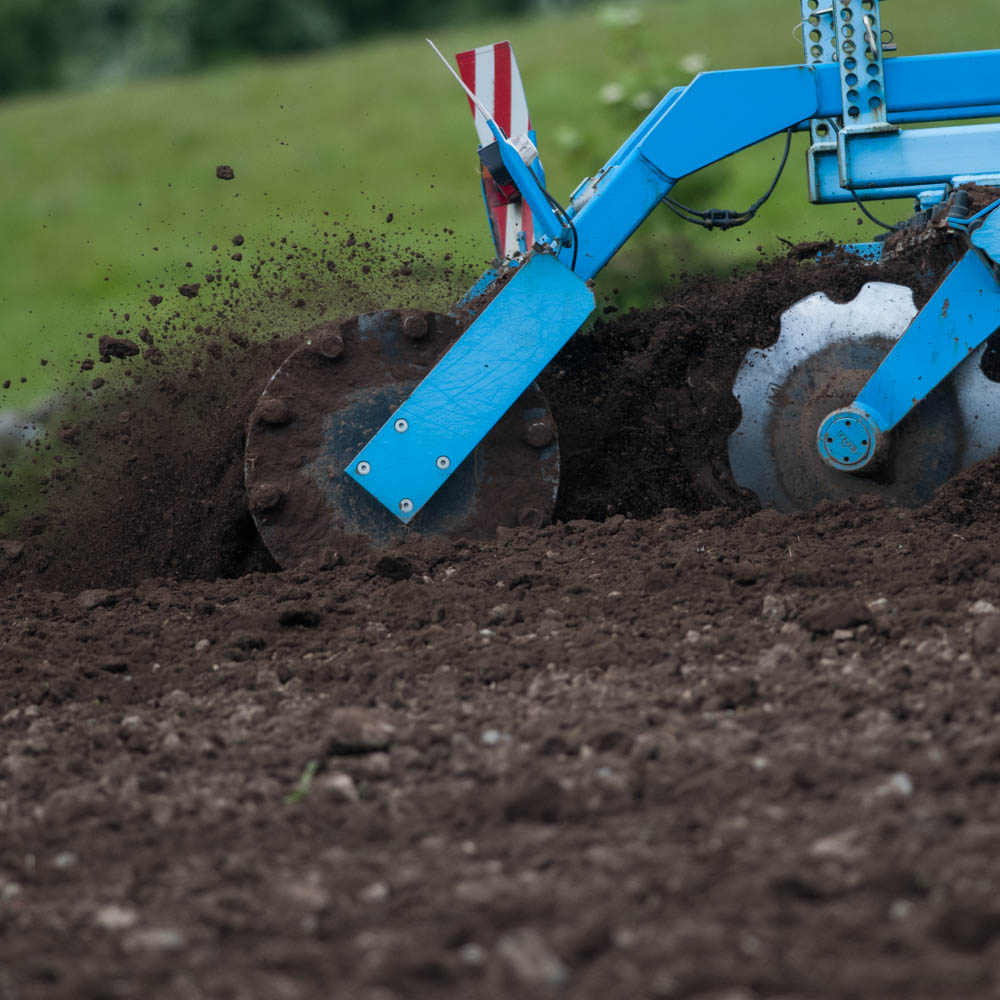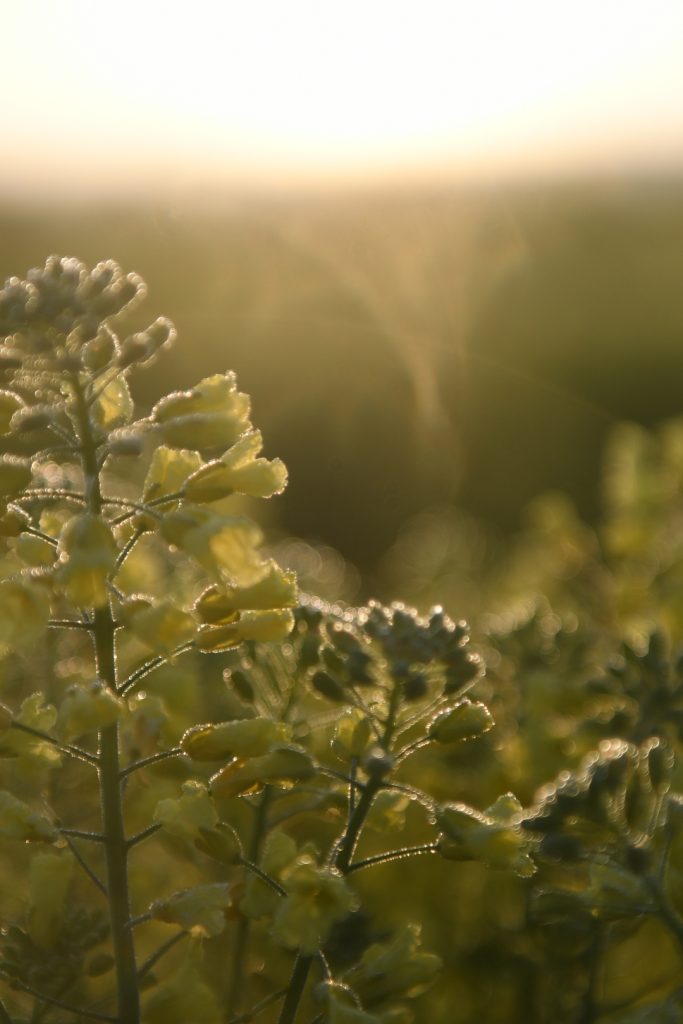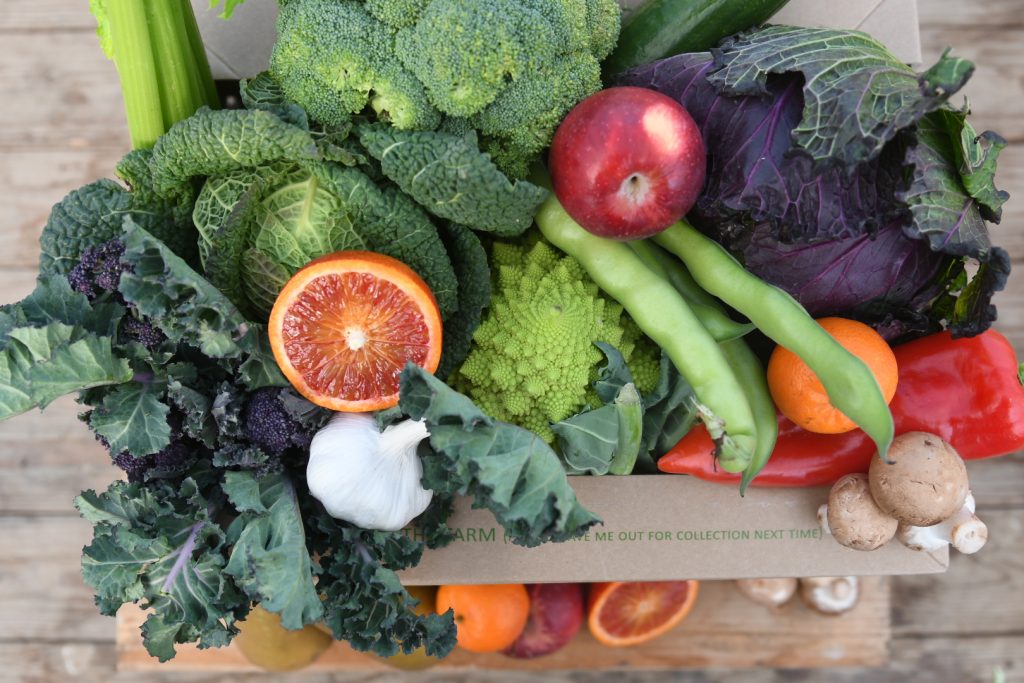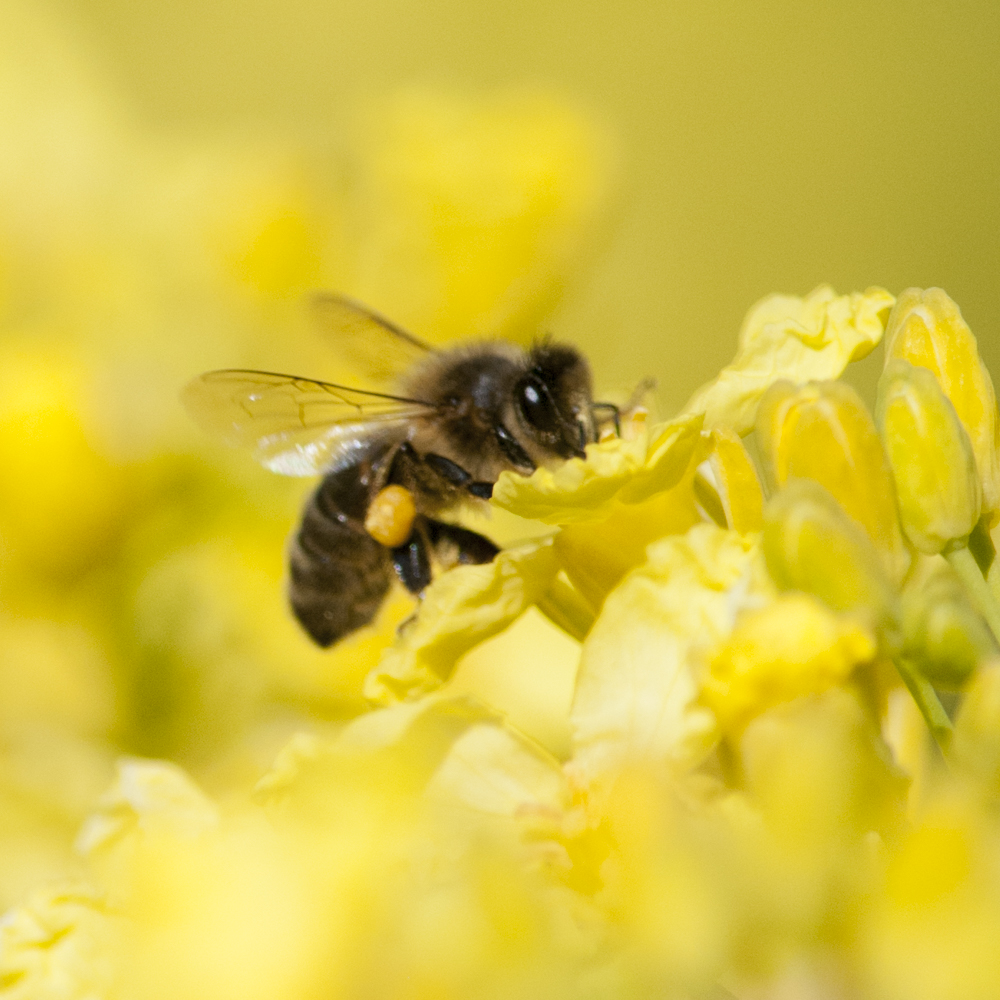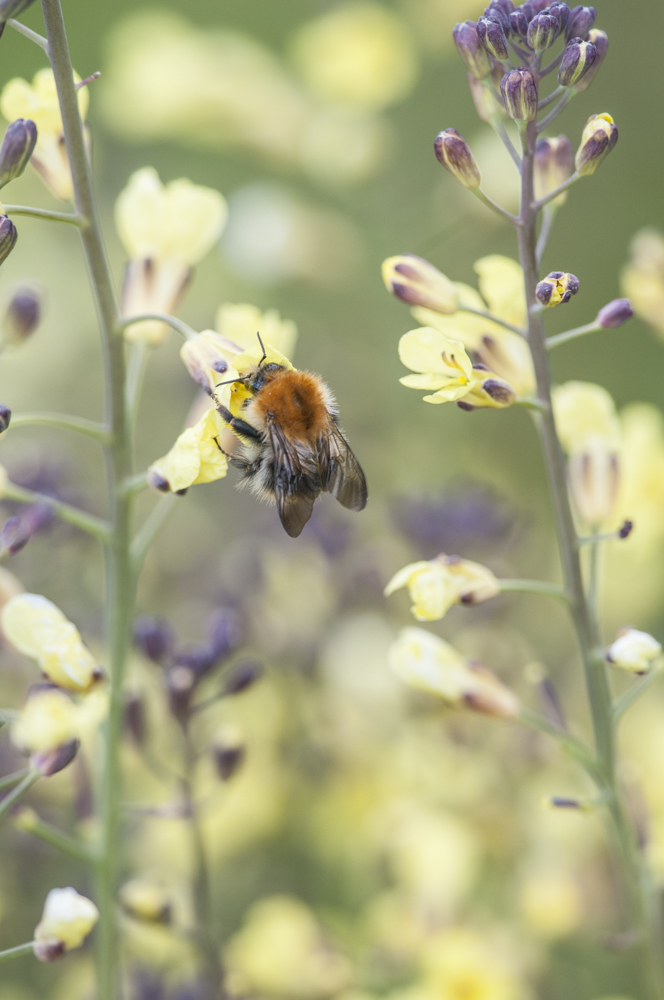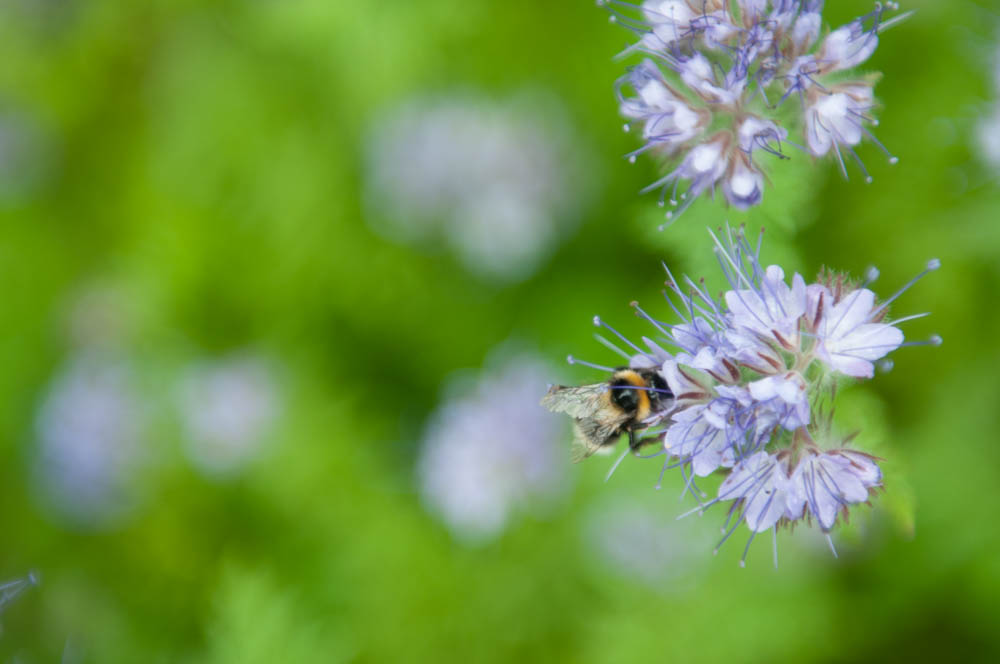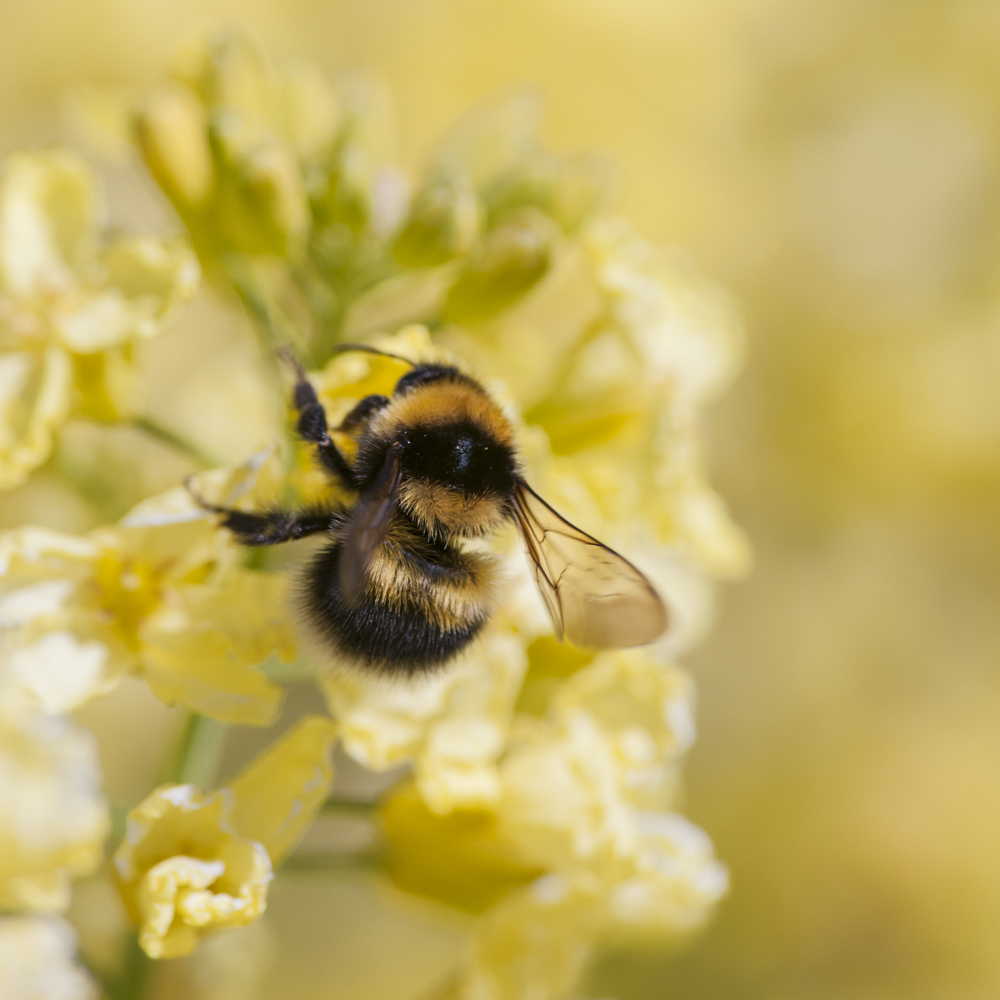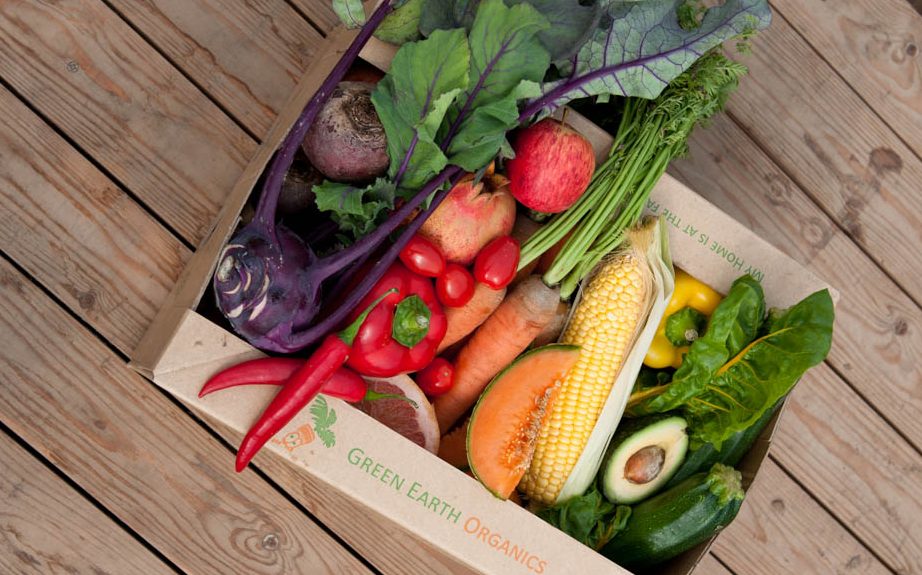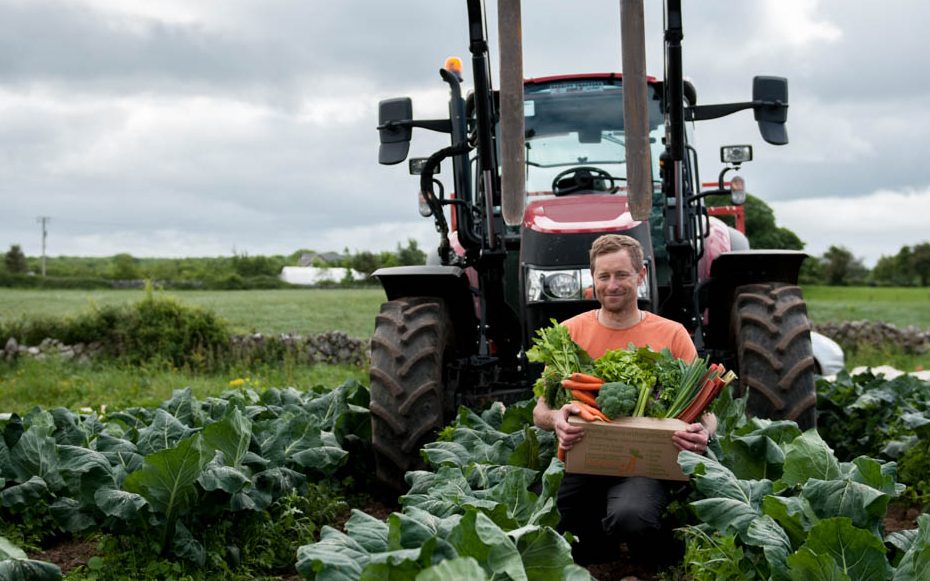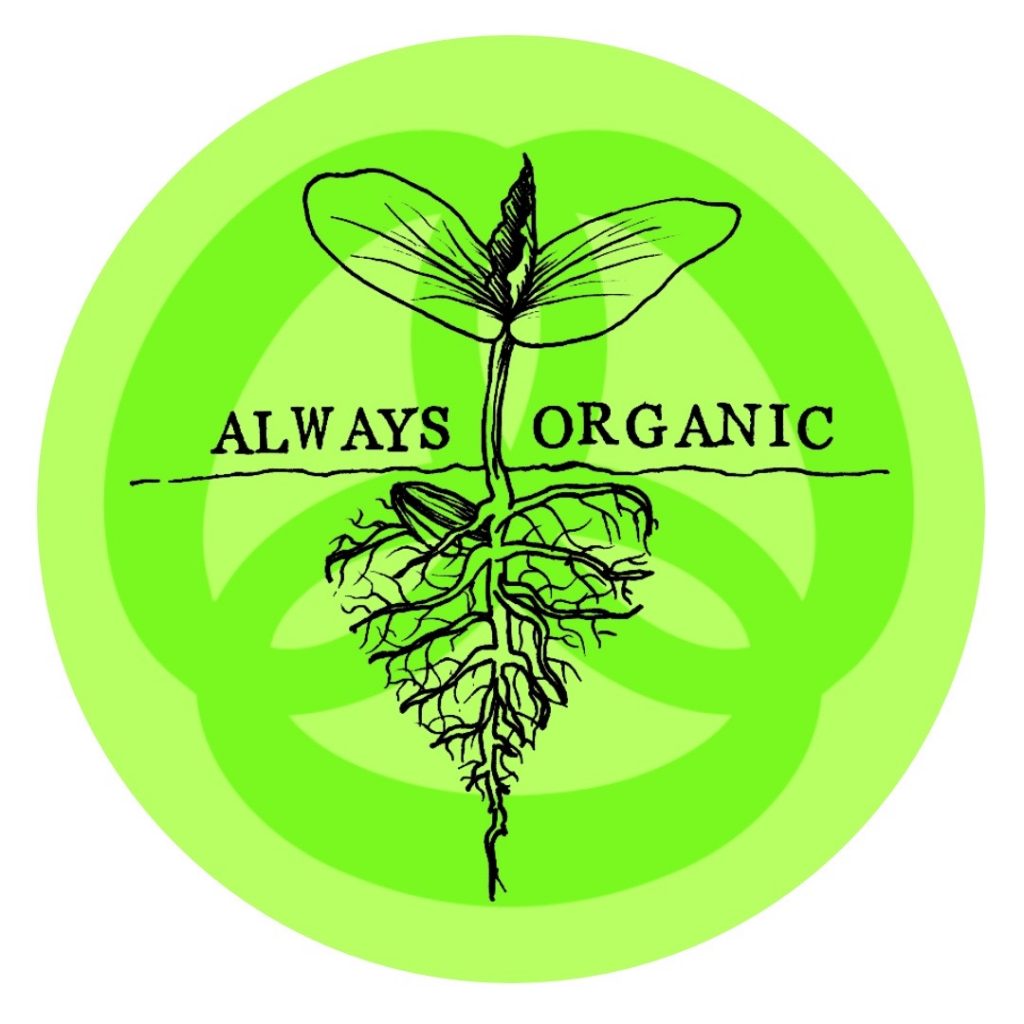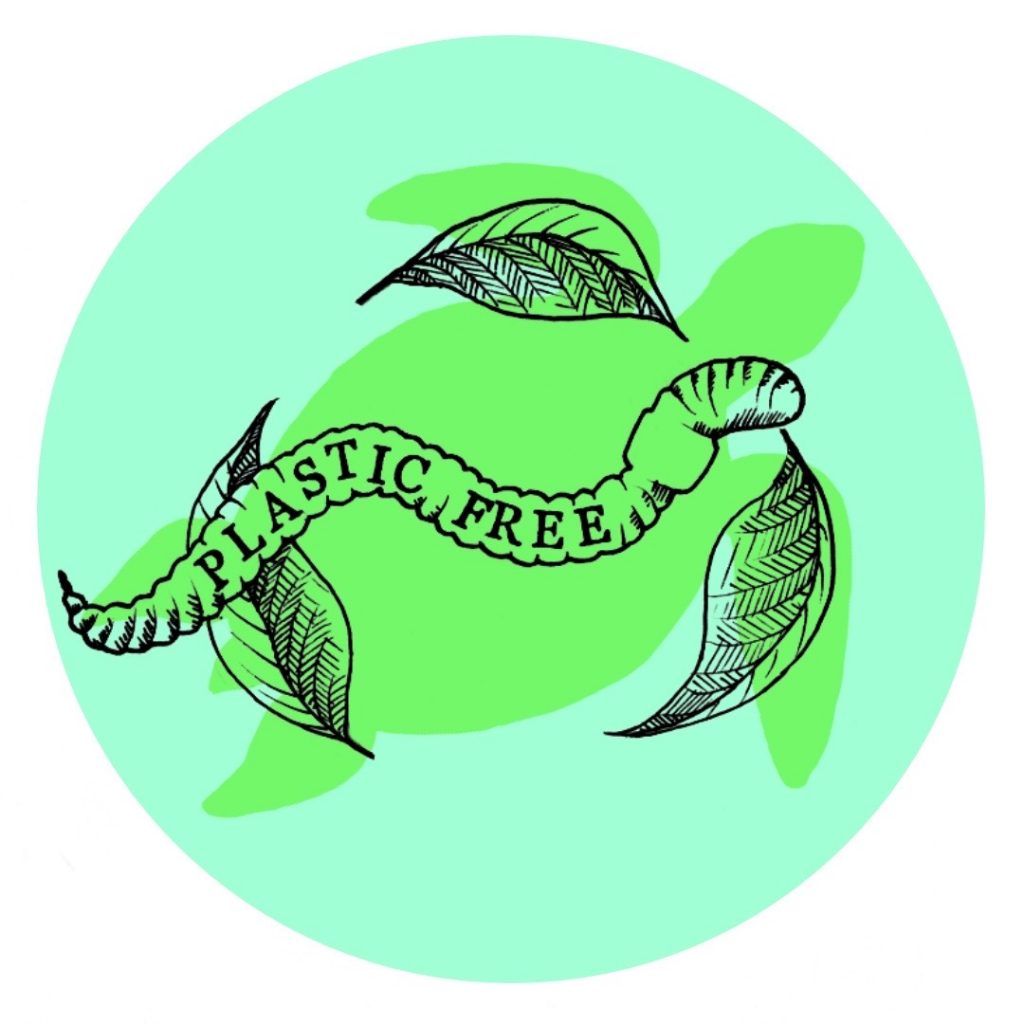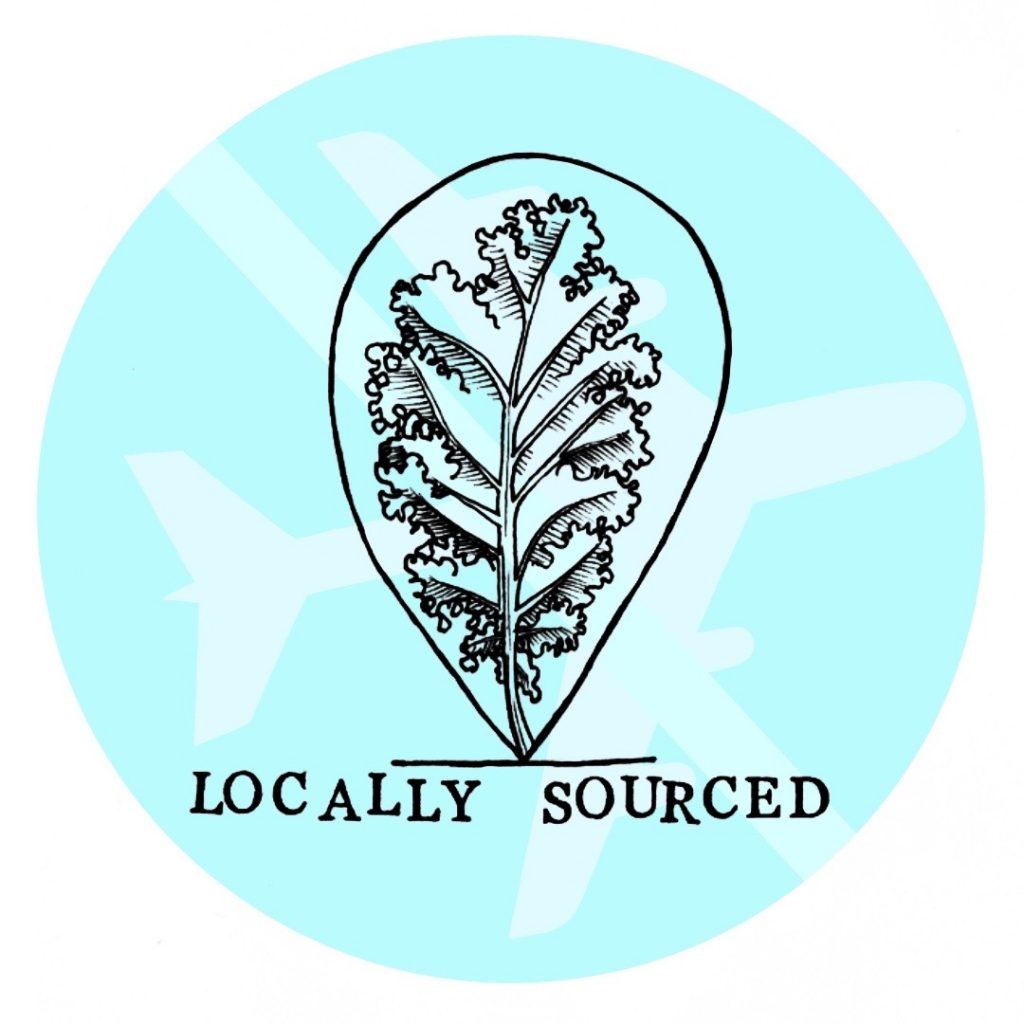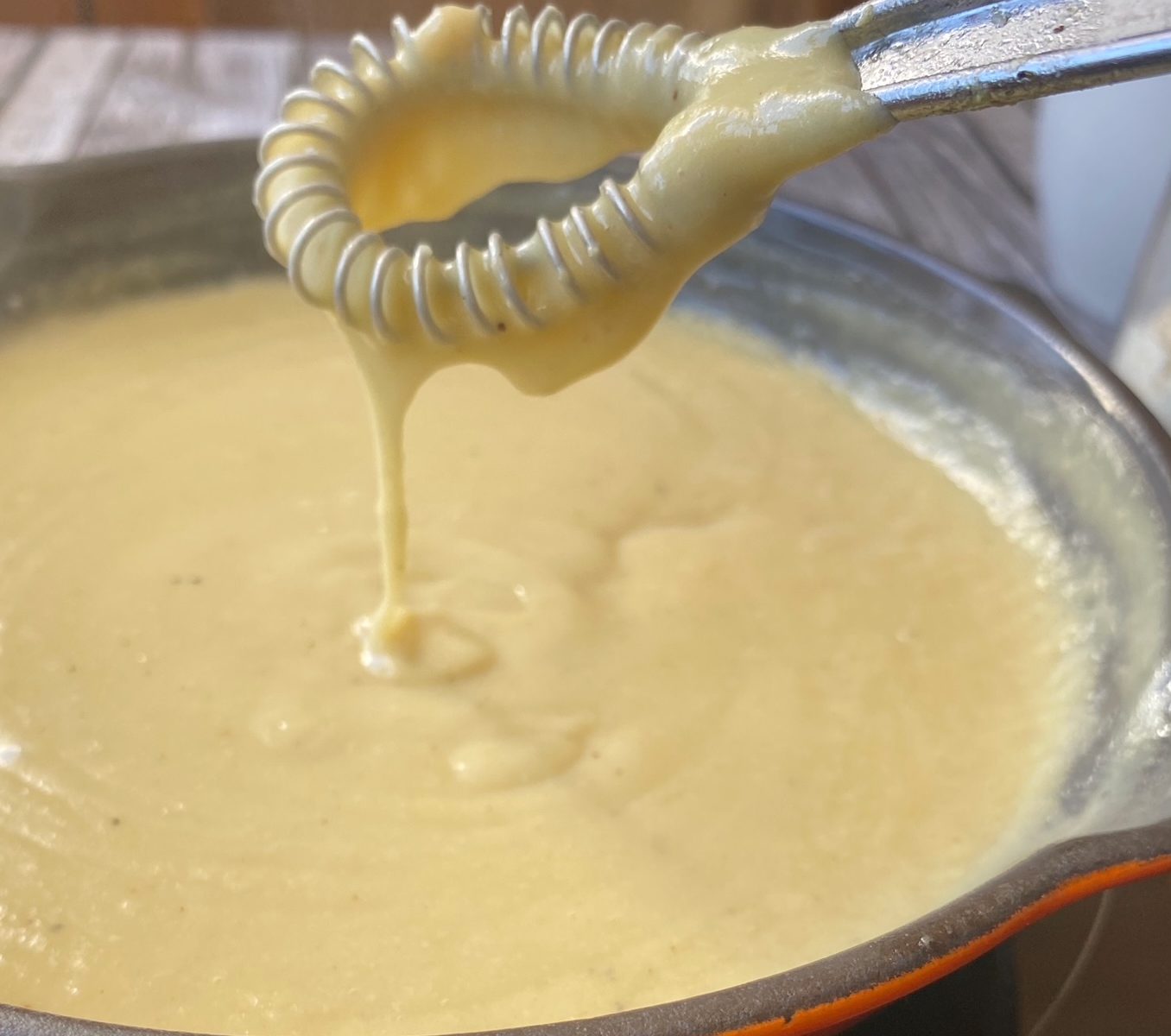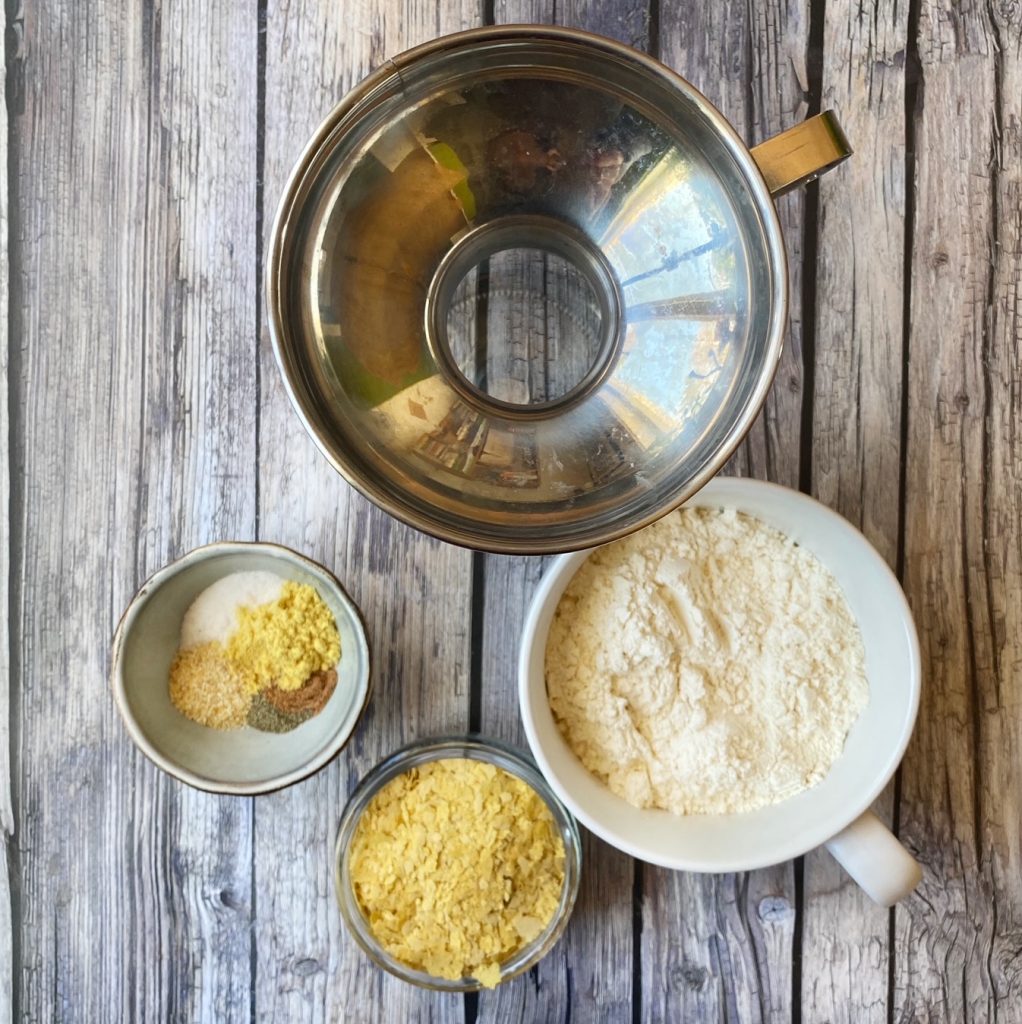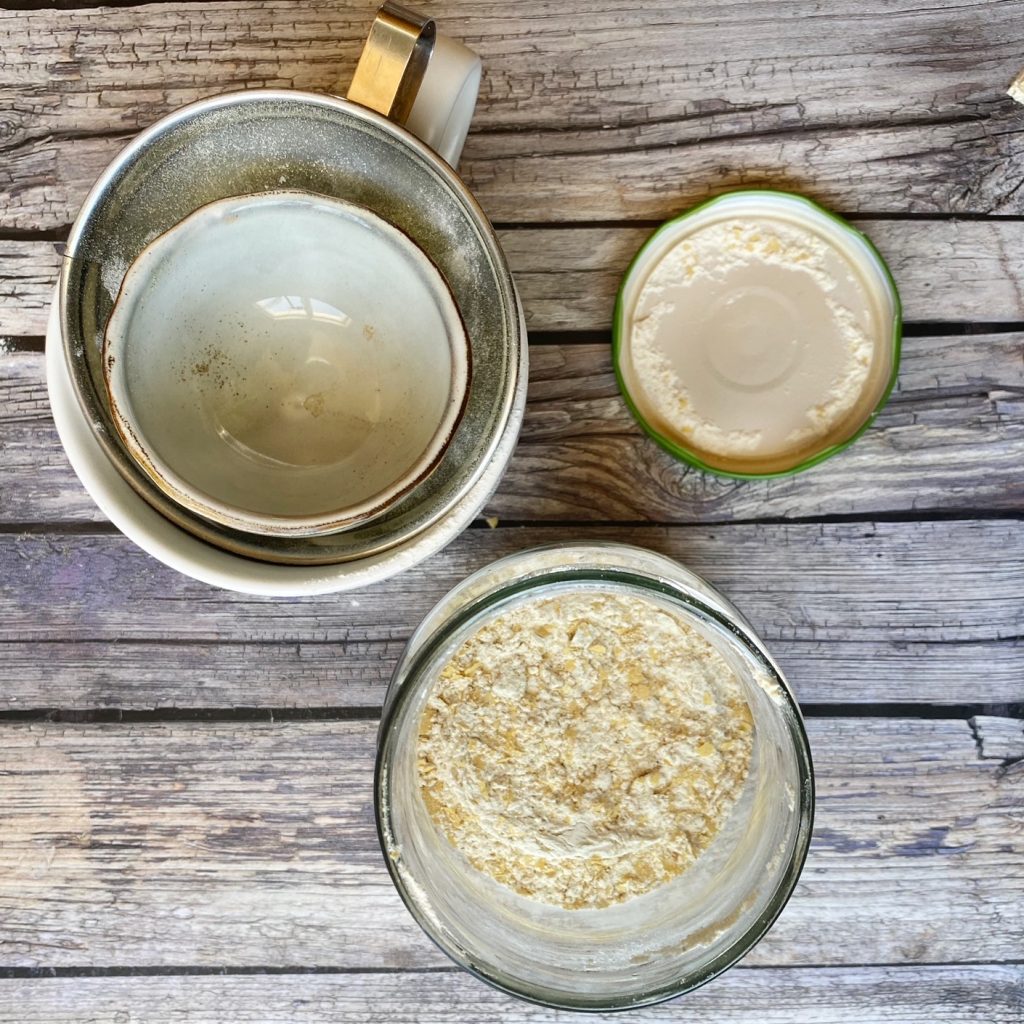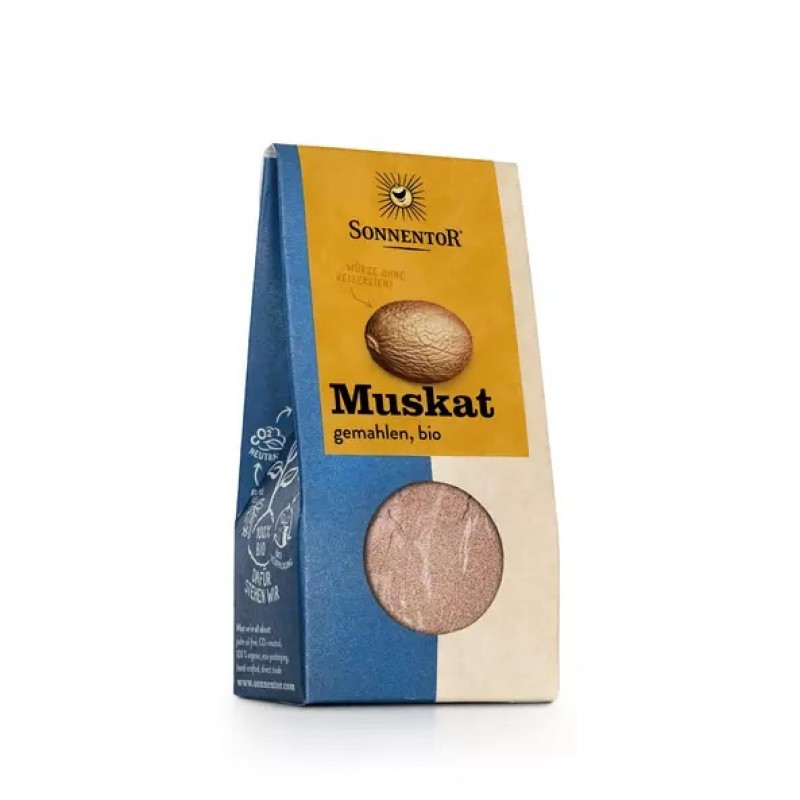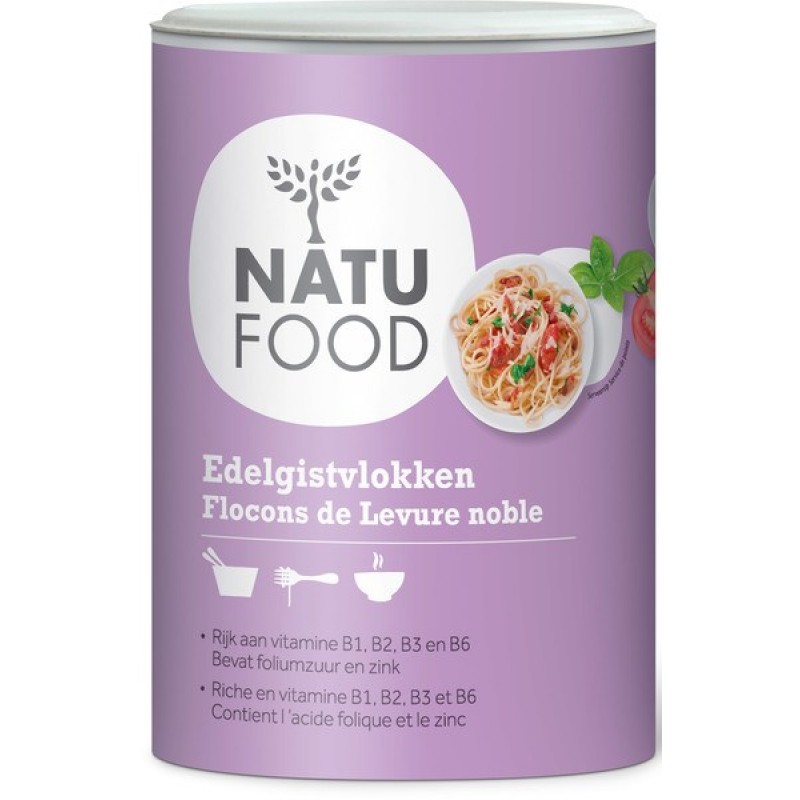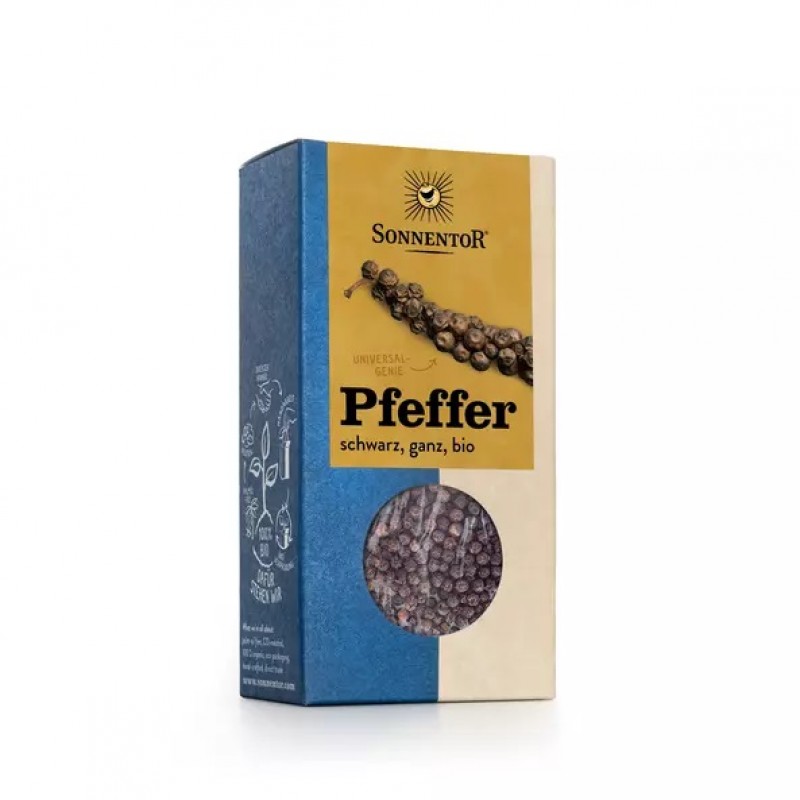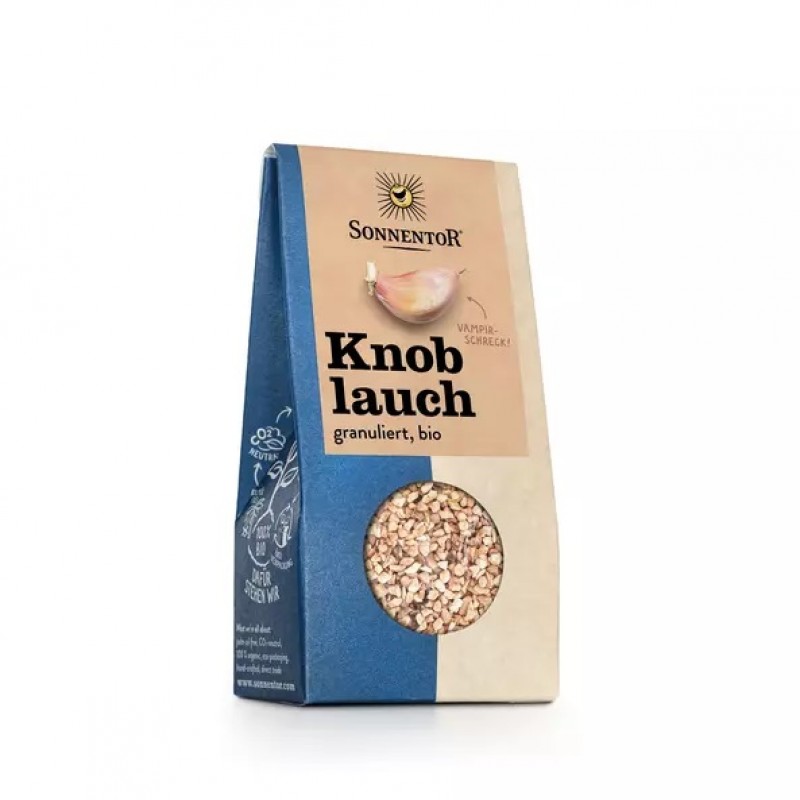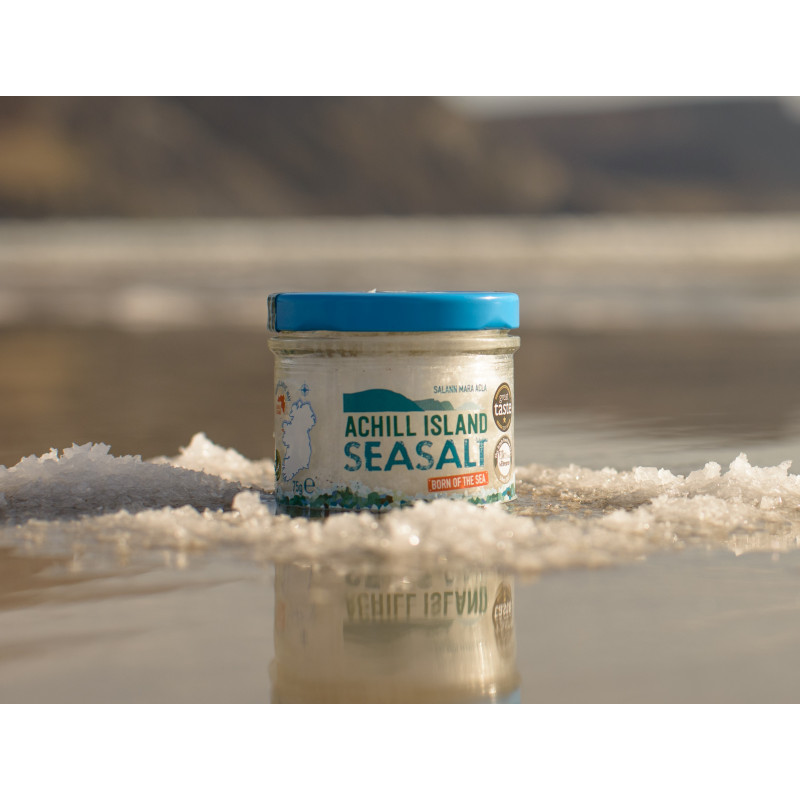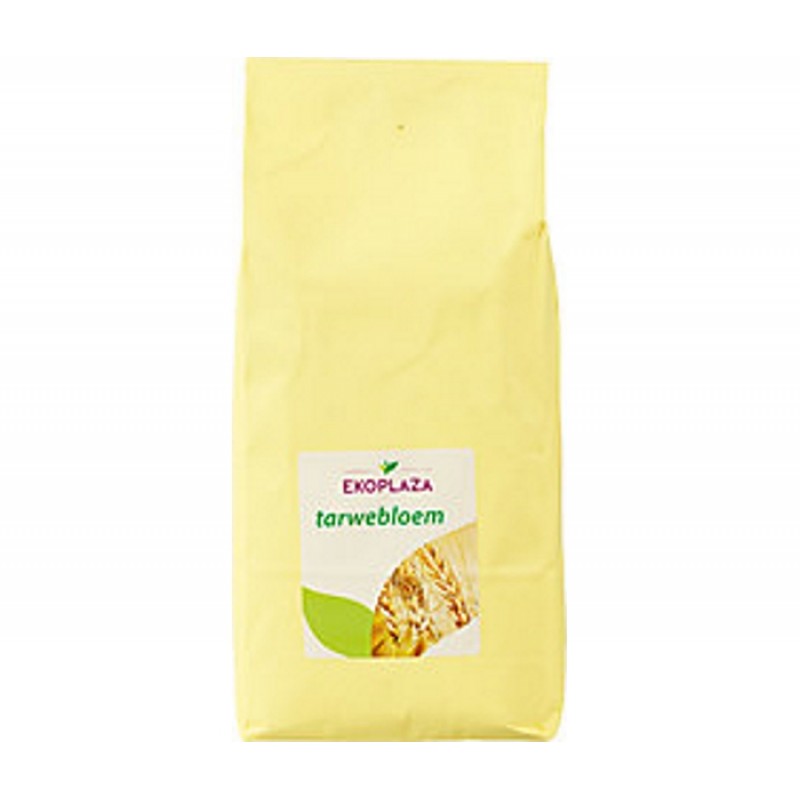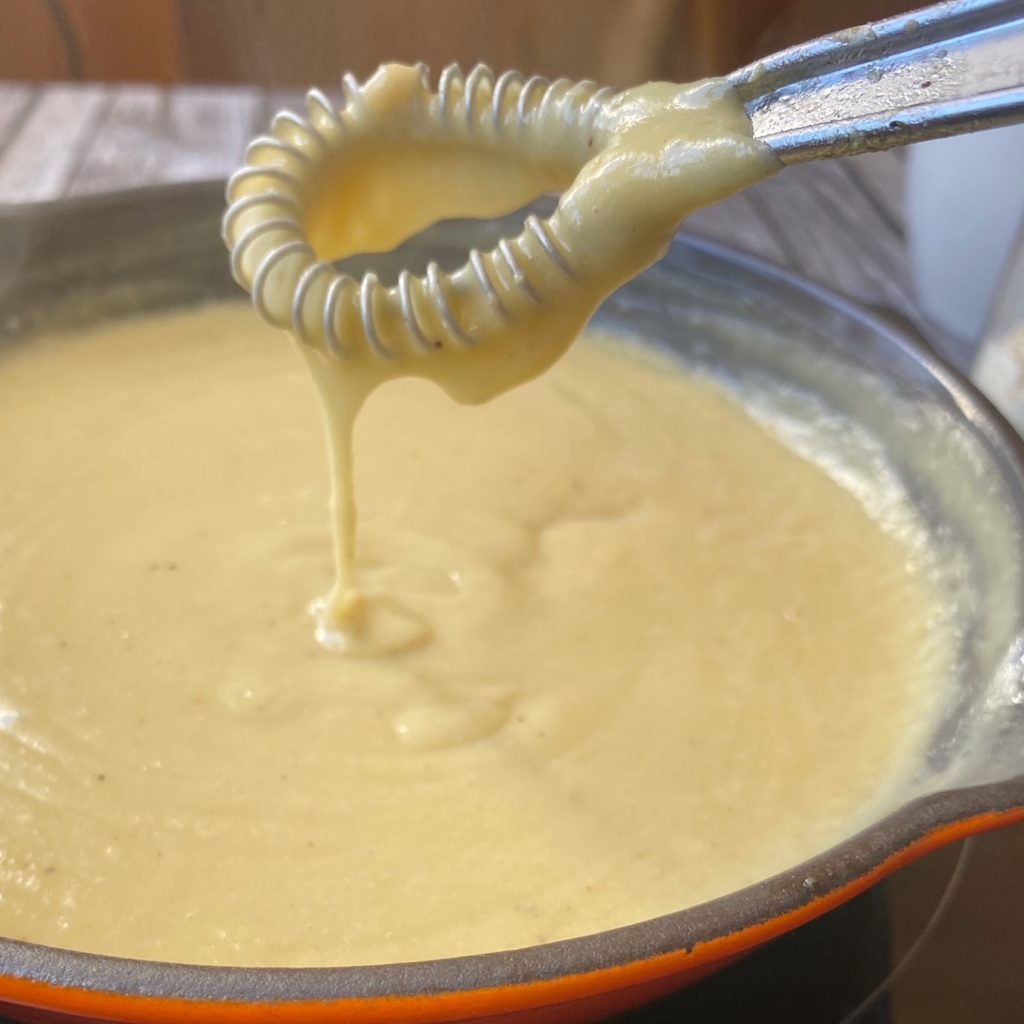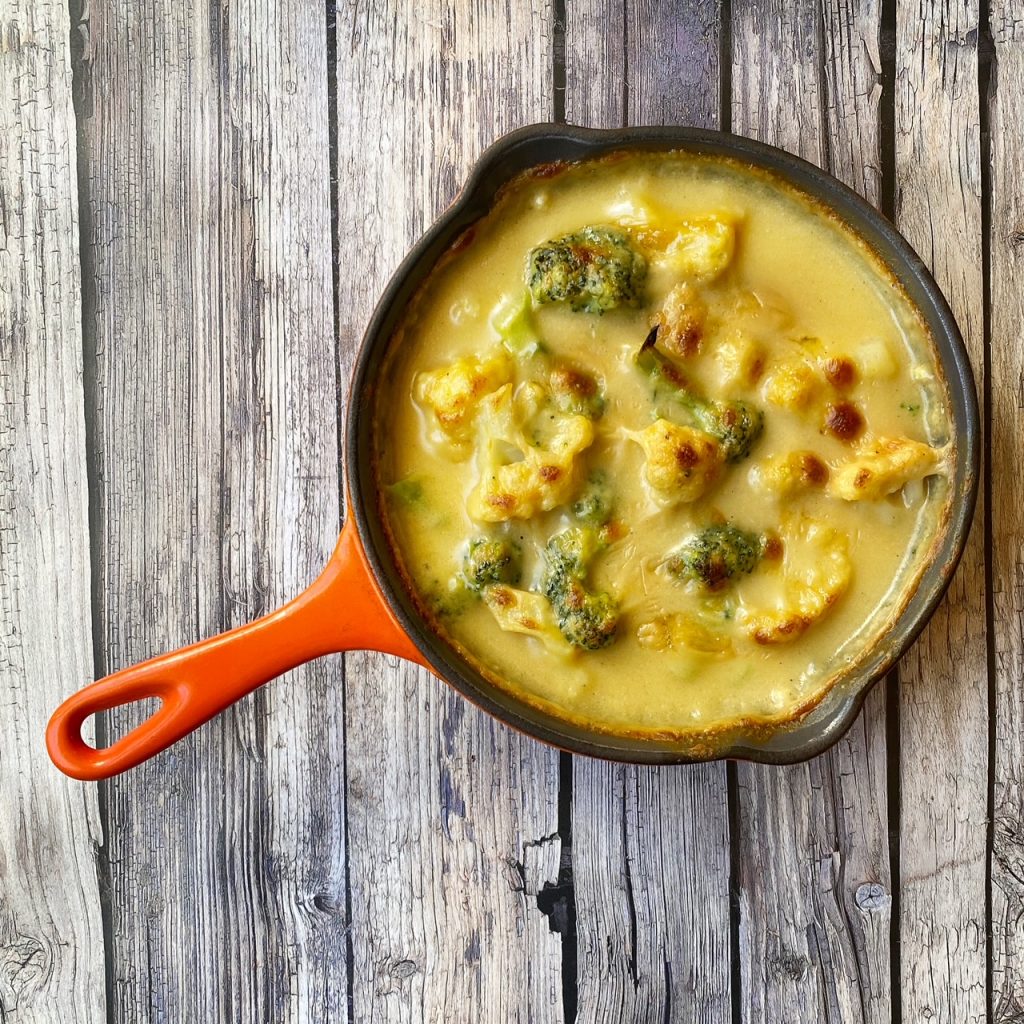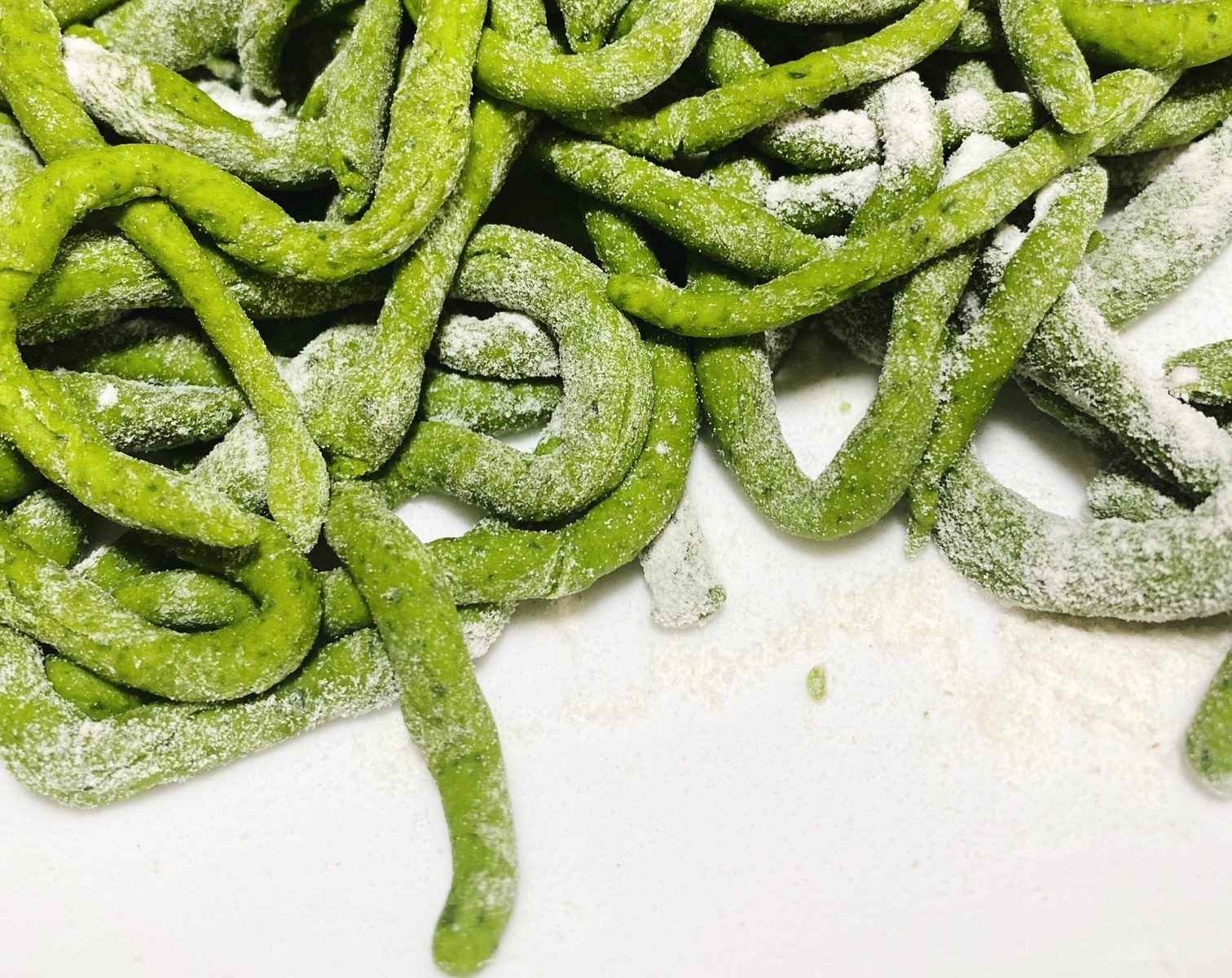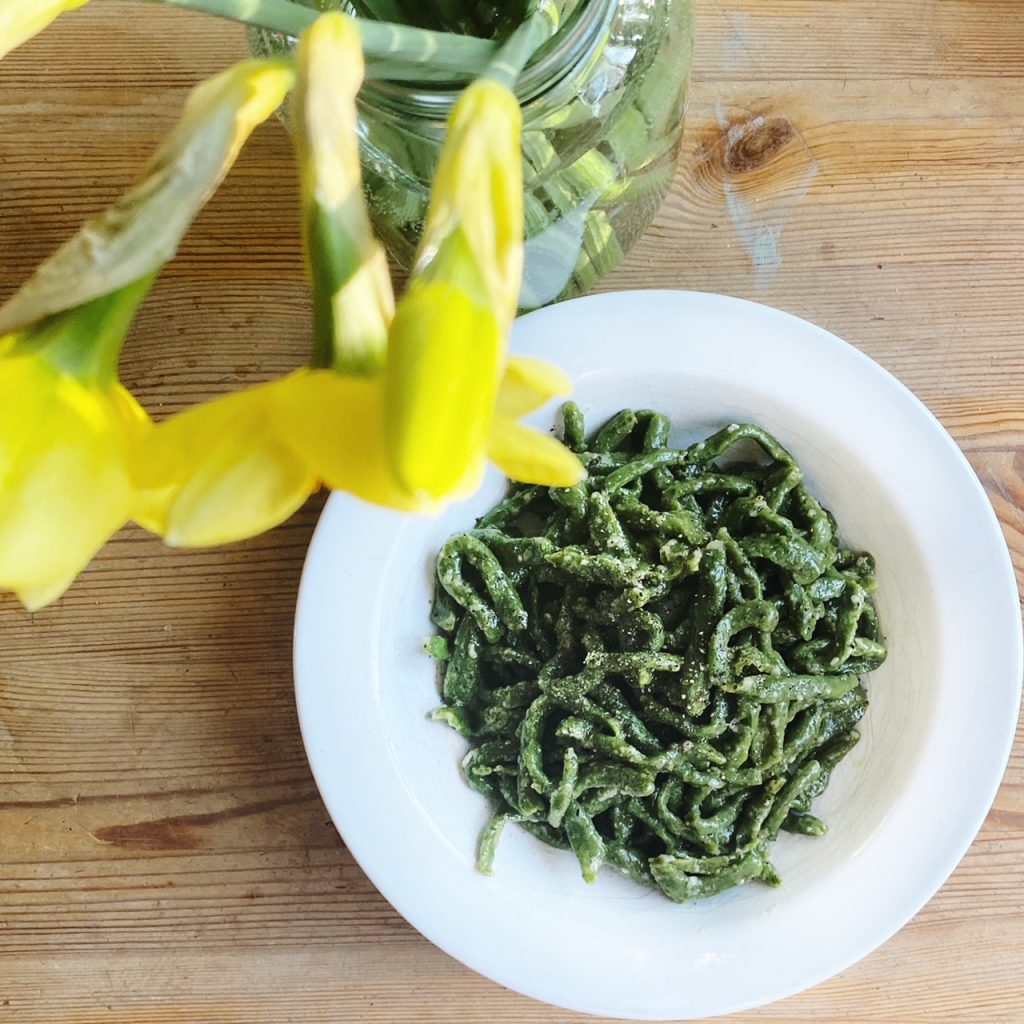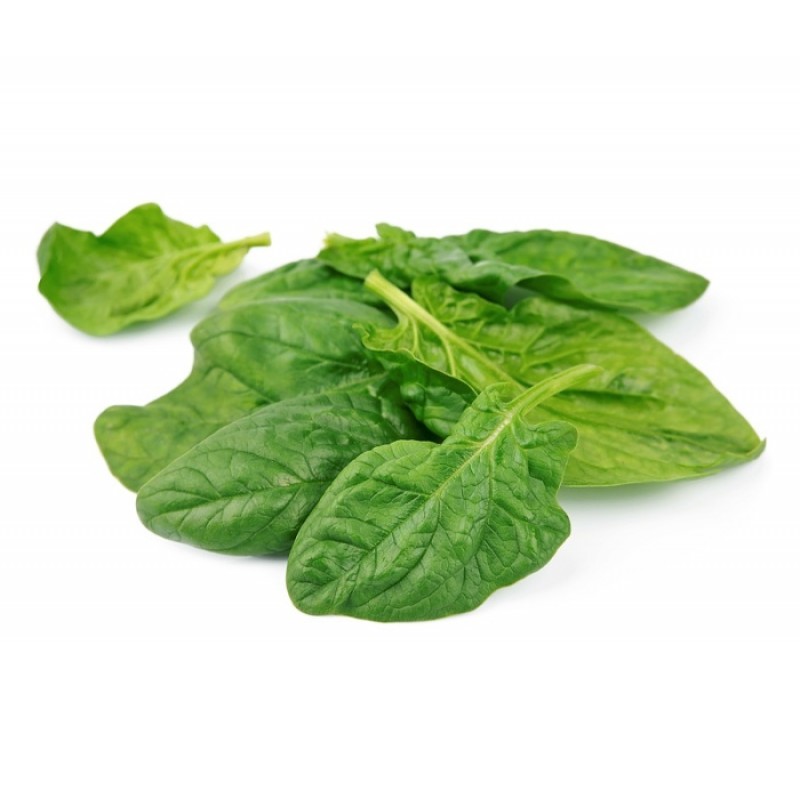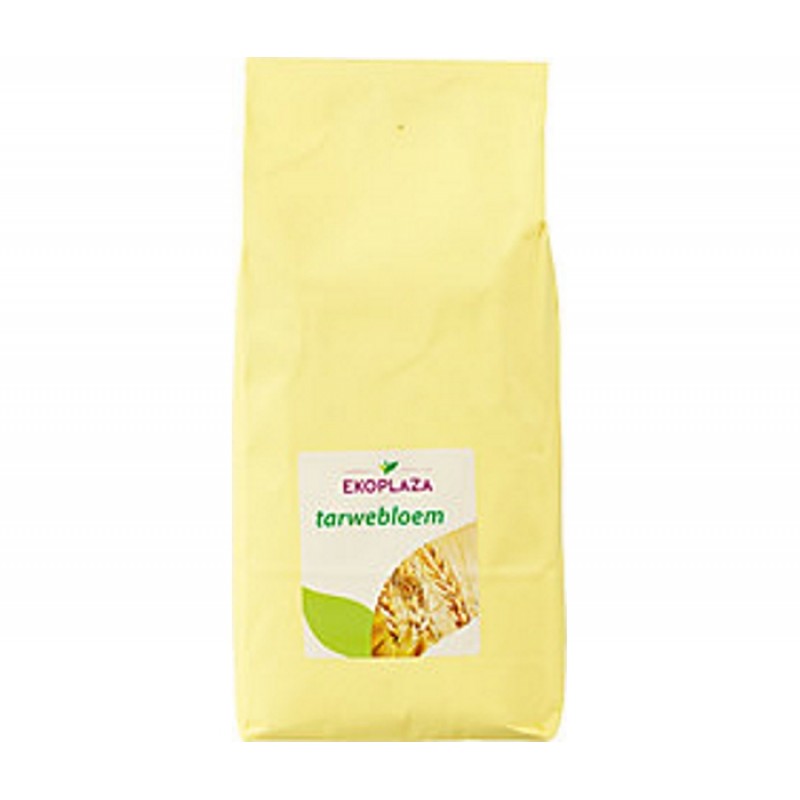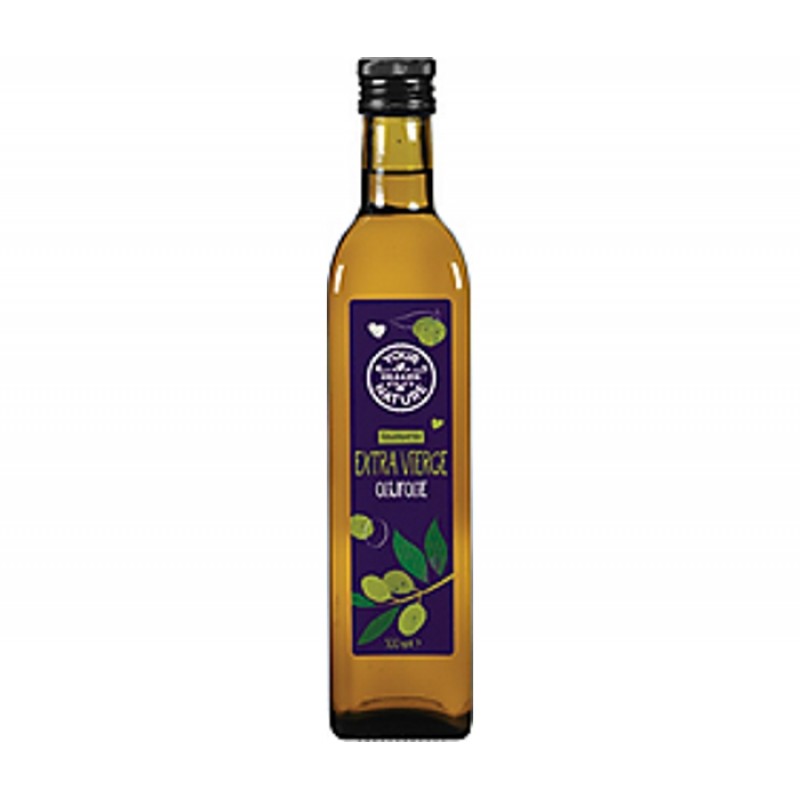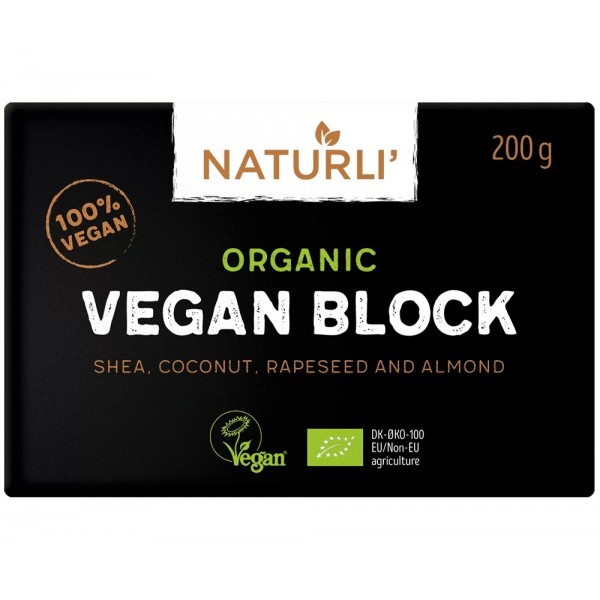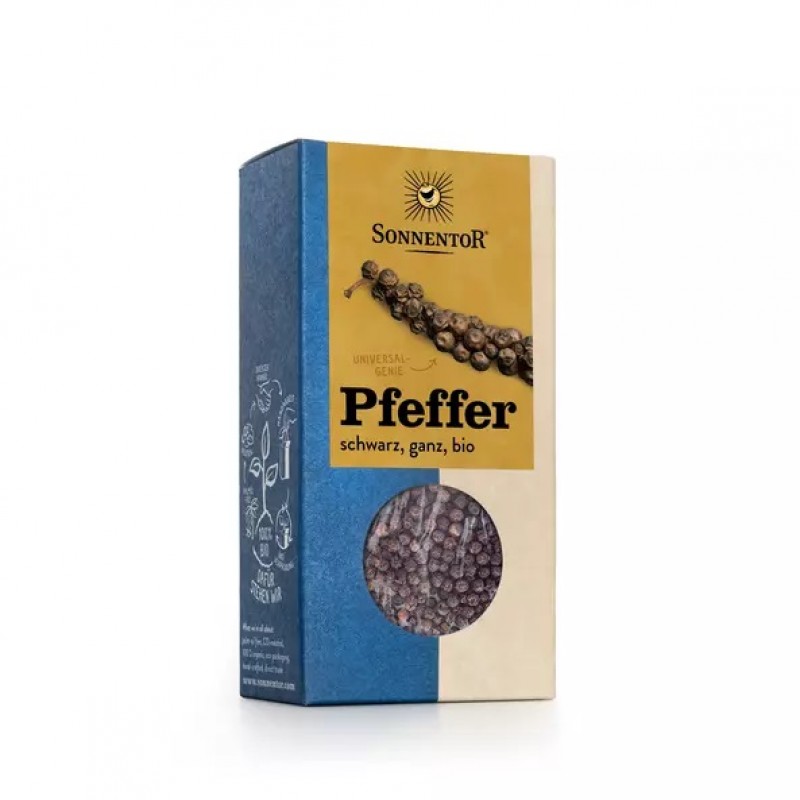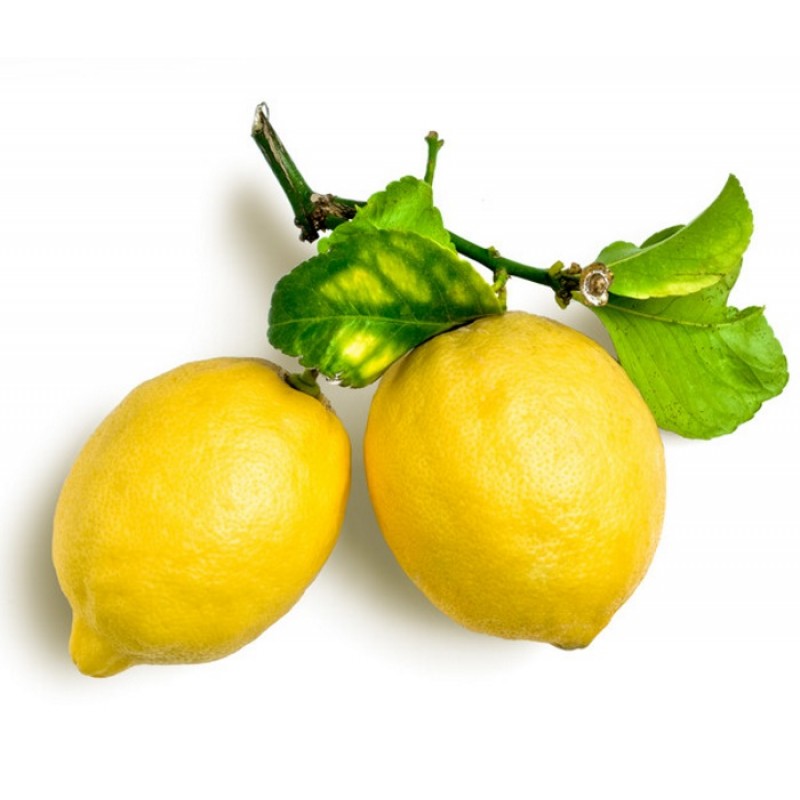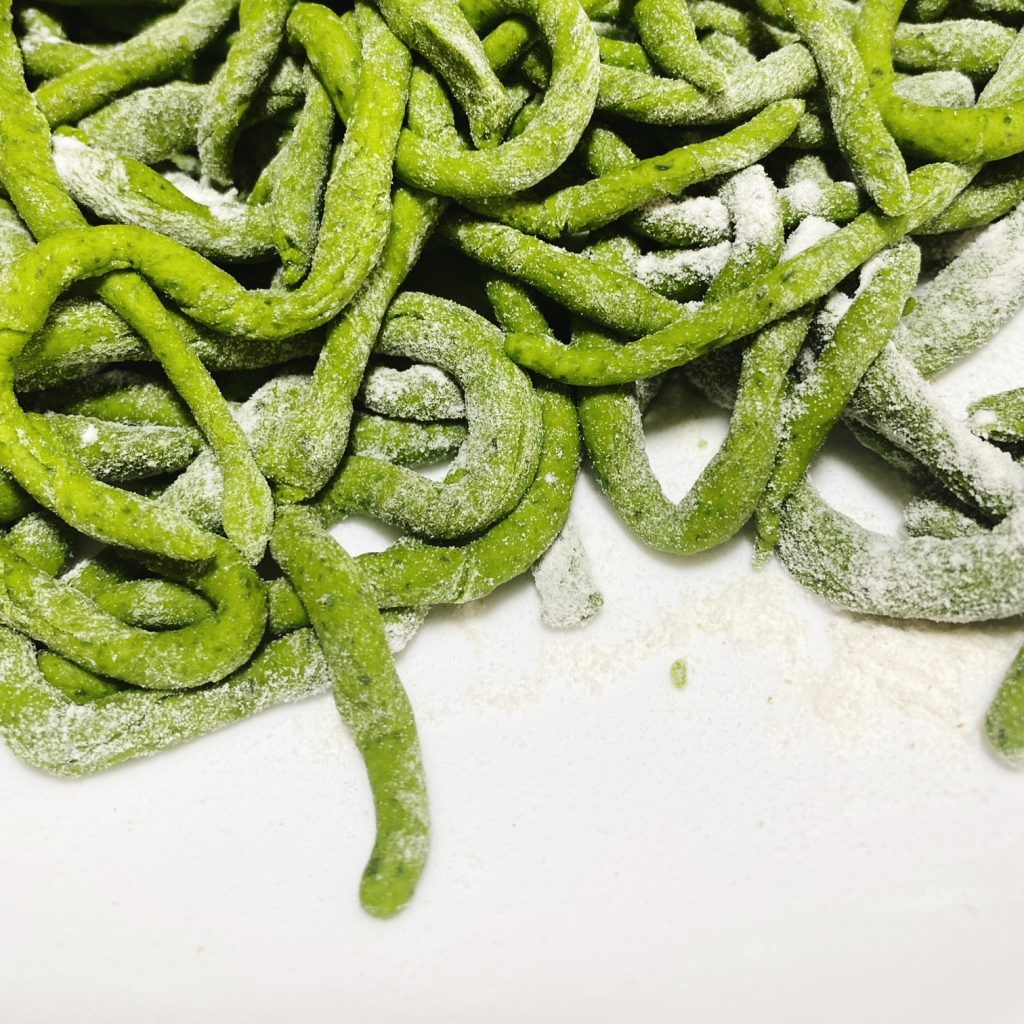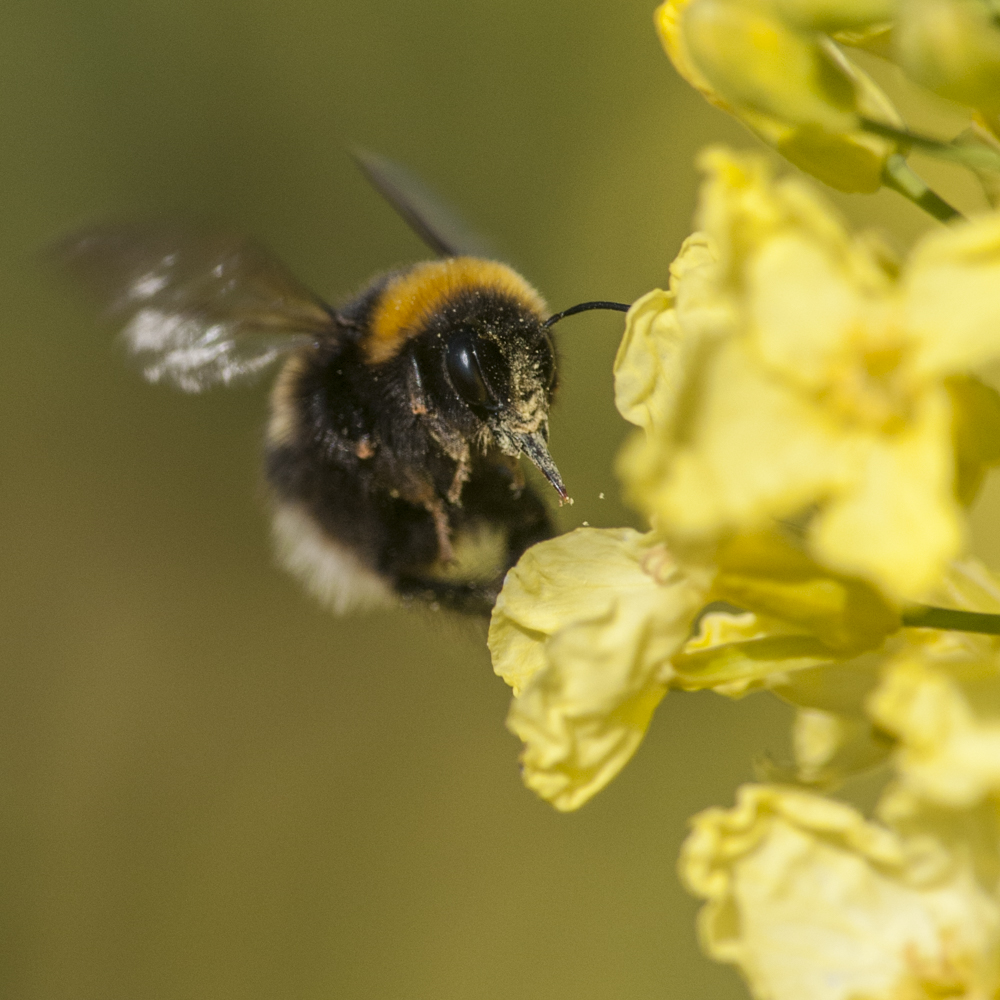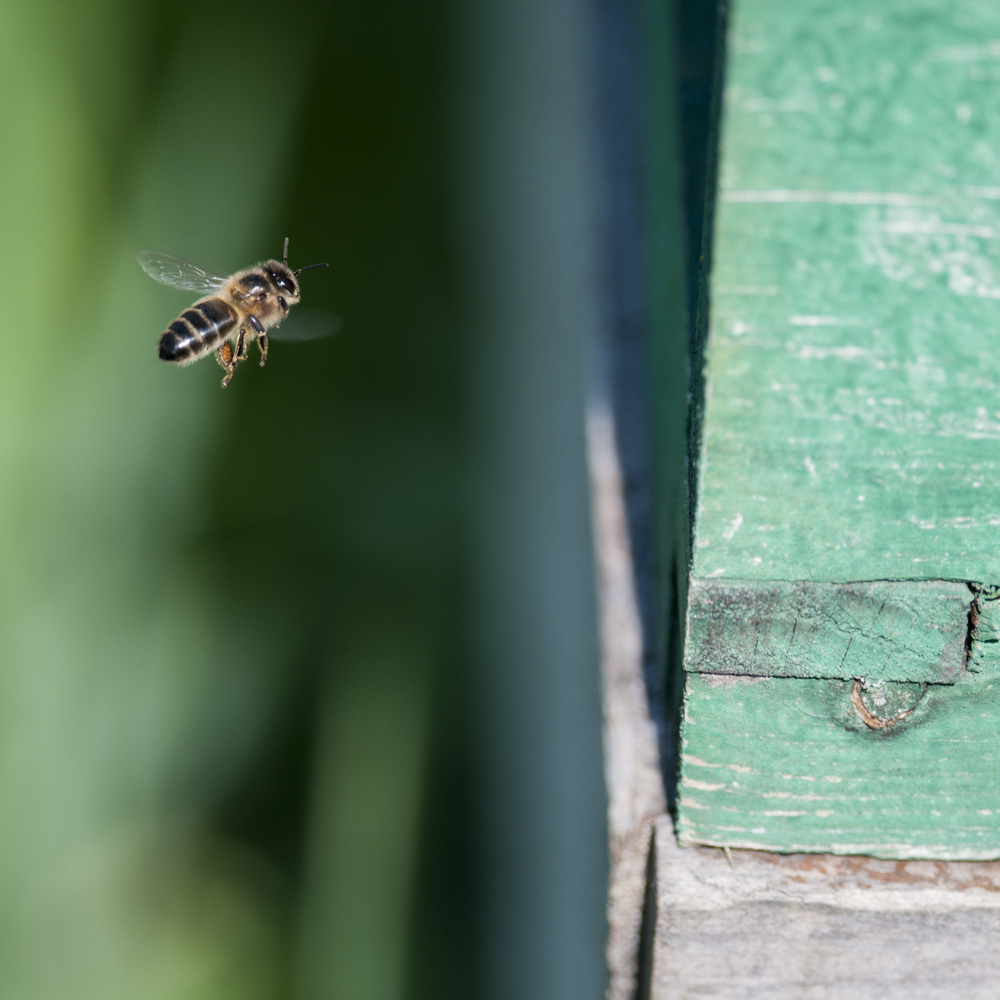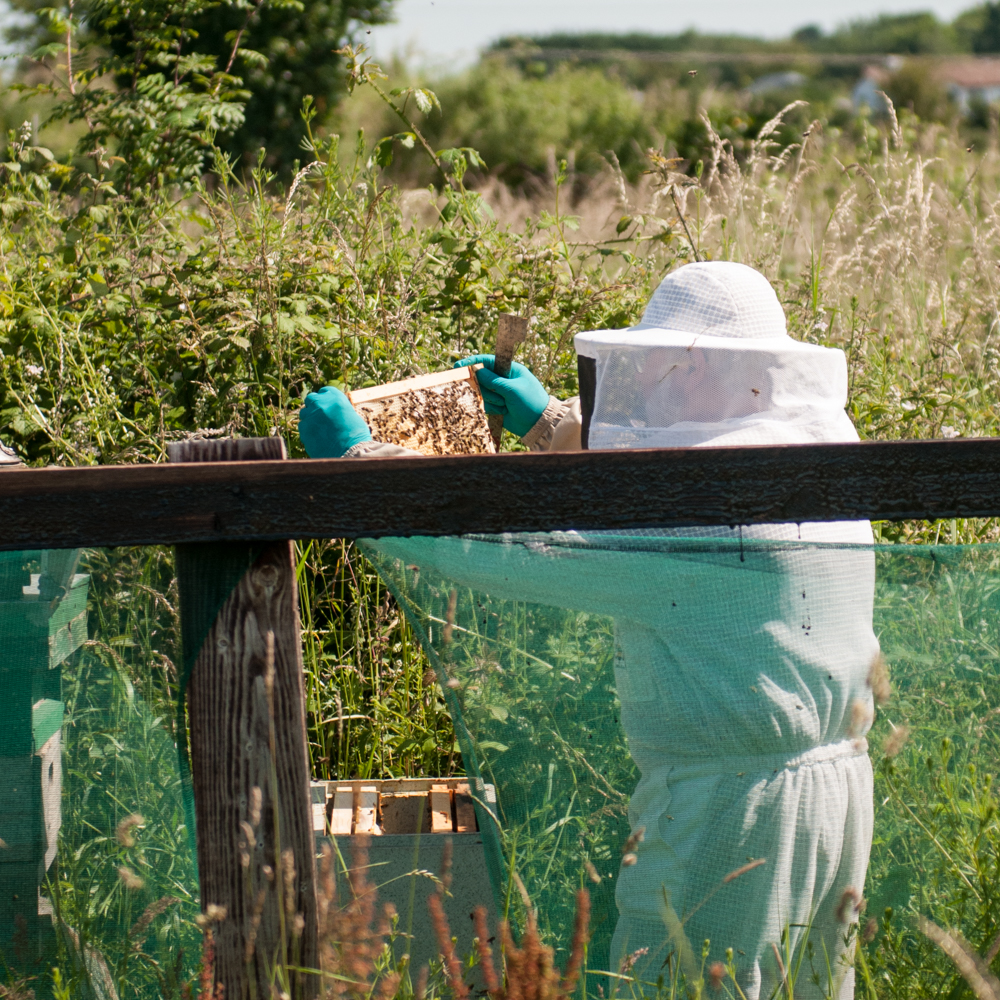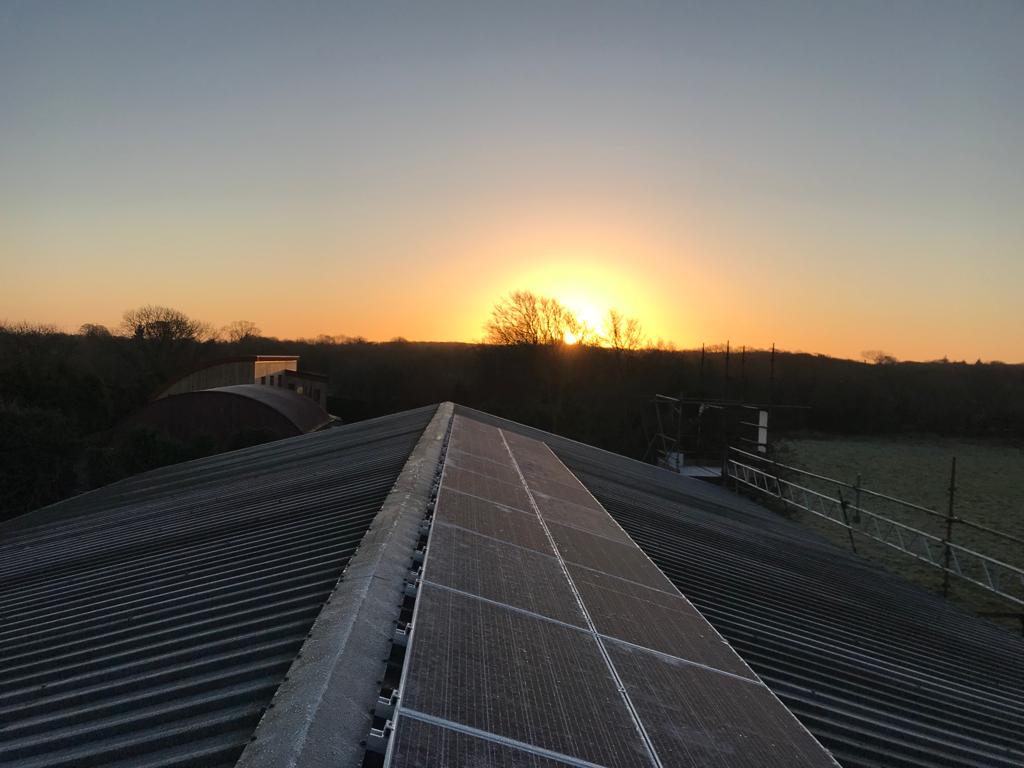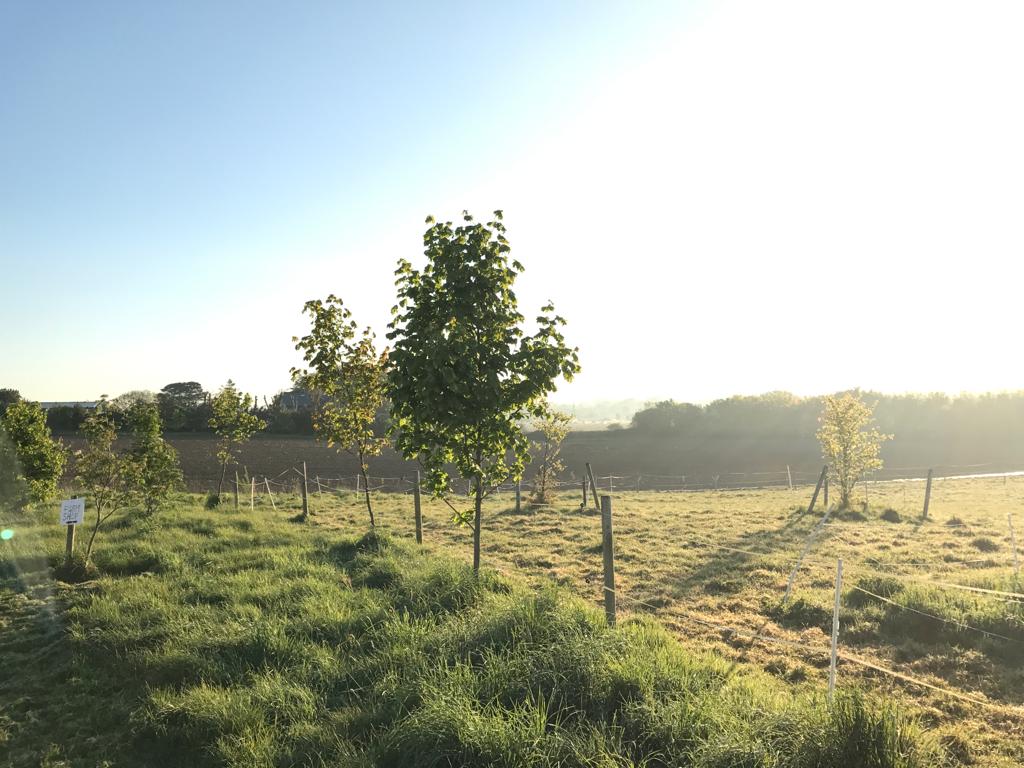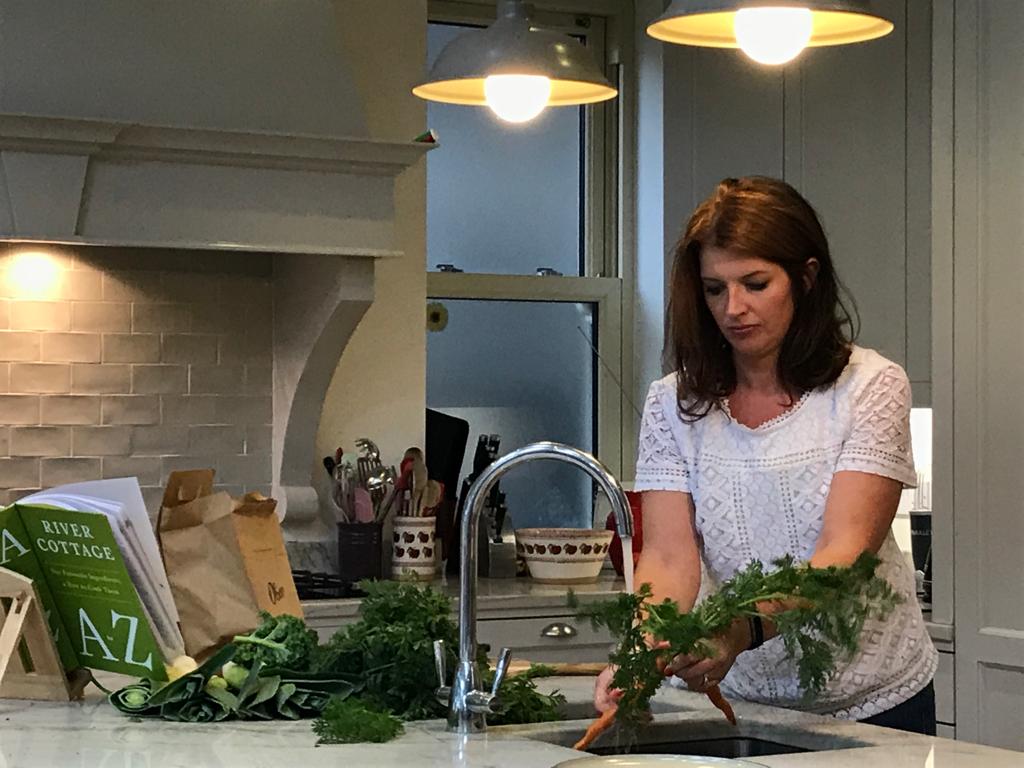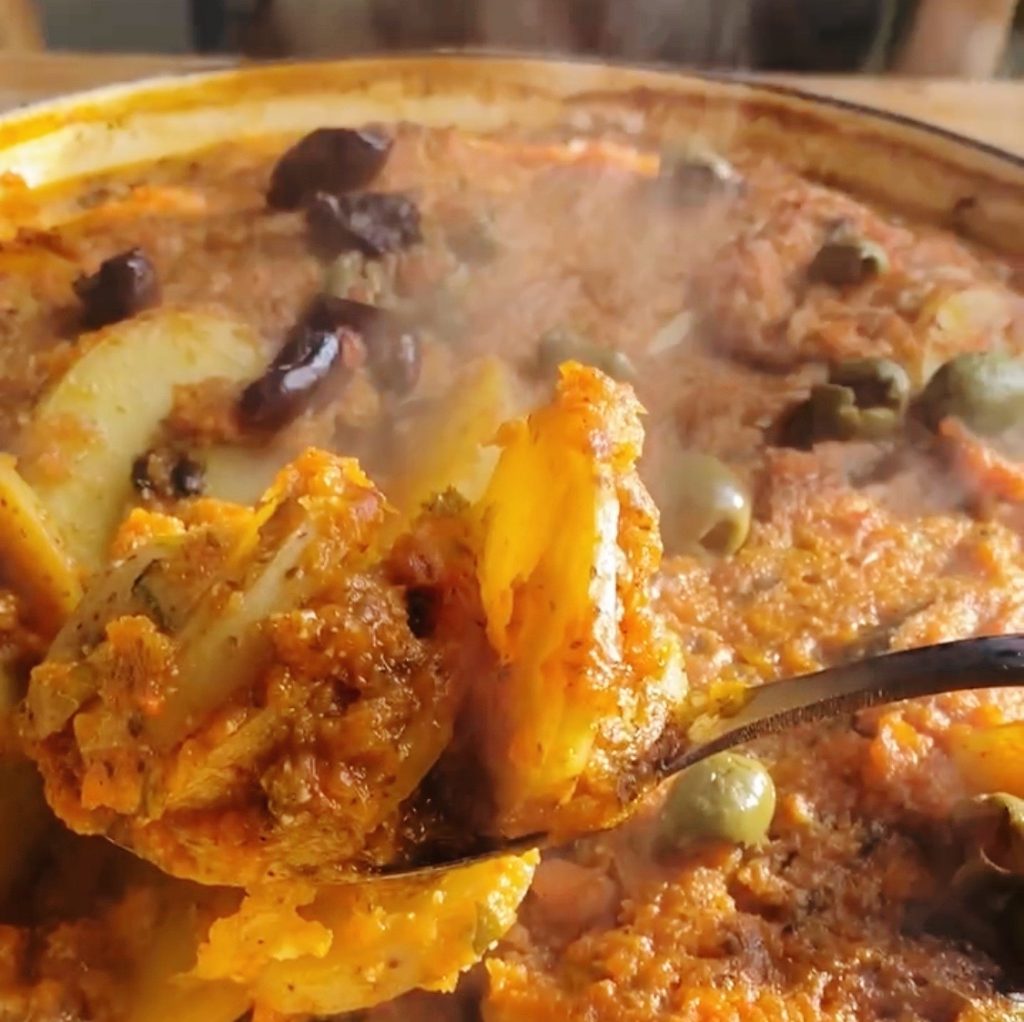
There are so many ways to cook potatoes – boiled, chips, mash, roasties, soups, stews, gratin, jacket potatoes… but this Mediterranean-style way is one of my favourites. The rich tomato sauce and fragrant herbs make the humble, comforting potato into a summery dish which sings with flavour. I usually top it with some of my vegan tofu-feta or just some salty olives and bake it with the lid off for a little extra colour and flavour. Serve with a simple greek salad and a glass of wine – that’s dinner sorted.
Liz x
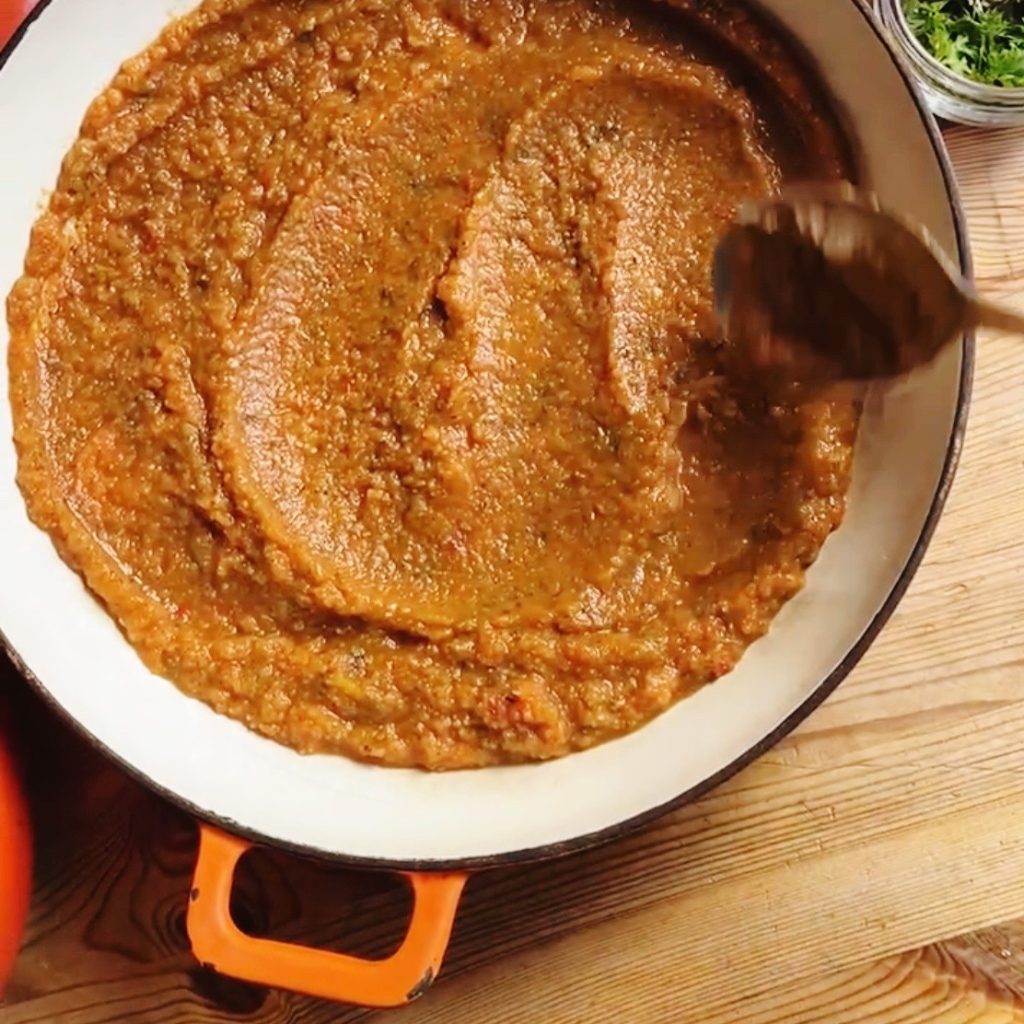
Ingredients (serves 6)
- 4 tbsp olive oil
- 1 large white onion, diced
- 6 cloves of garlic, crushed
- 2 tins chopped tomatoes
- optional extra Med-veg eg courgette, peppers, carrots, aubergine
- 10 medium potatoes
- salt and pepper to taste
- 1 tbsp each oregano, thyme, rosemary
- olives/feta/capers
- salad to serve
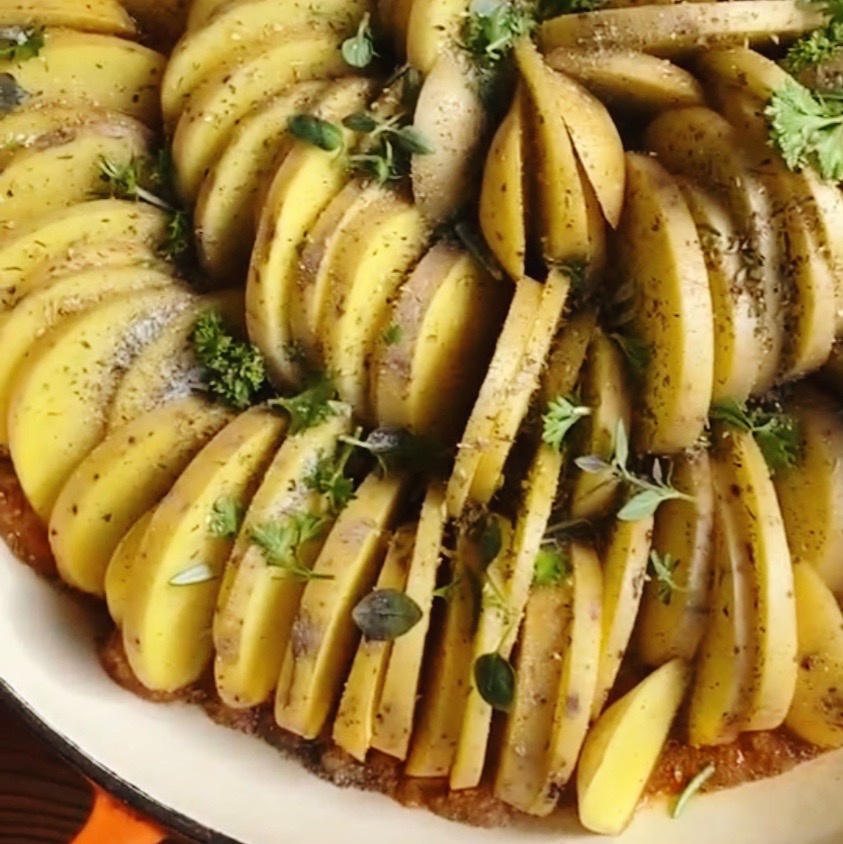
Method
- Start by making a rich tomato sauce. This can be however you like it but I usually sauté the diced onion in 2 tbsp olive oil until soft and starting to colour, then add crushed garlic and if I want to bulk it out, some chopped veg like an aubergine, pepper or courgette, maybe a carrot or two? Add the tinned tomatoes and swirl out any juices left in the tins into the pot with a bit of water. Season well with salt, pepper and a pinch of oregano and simmer until the sauce is rich – around 15-20 minutes. Blend with a stick blender, taste and adjust the seasoning if needed with more salt or pepper.
- Put the oven on to 200C and find an oven proof dish with a lid. Wash and thinly slice your potatoes into 3mm or so rounds.
- Place 1/2 the tomato sauce into the dish then arrange the potato slices on top. Then season the potato layer with salt, pepper and the herbs. Drizzle over the remaining olive oil and then spoon over the remaining tomato sauce.
- Put the lid on and bake until the potatoes are soft. This usually takes at least an hour but check on it as ovens and potatoes vary.
- Once the potatoes are cooked through, remove the lid and scatter over your topping of choice. Feta, olives, capers… Return the dish to the oven with the lid off to caramelise and get a little colour – just 5-10 minutes, keep an eye on it.
- Enjoy with salads or as a side to your choice of protein and greens.
